#featuring: reverend wakefield
Explore tagged Tumblr posts
Text
(Mostly) Lost, but Not Forgotten: Omar Khayyam (1923) / A Lover’s Oath (1925)

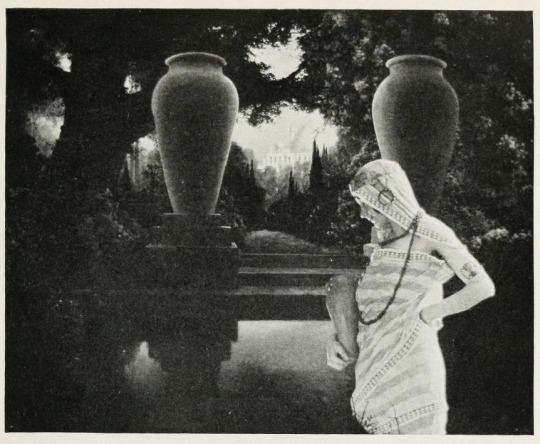
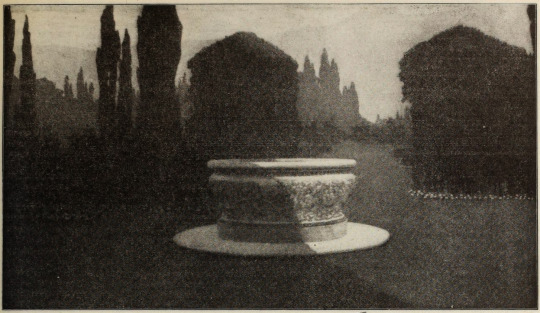
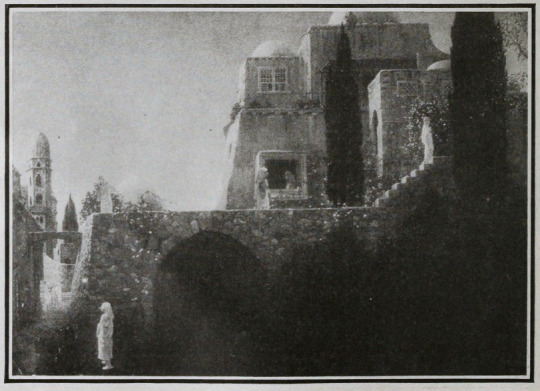
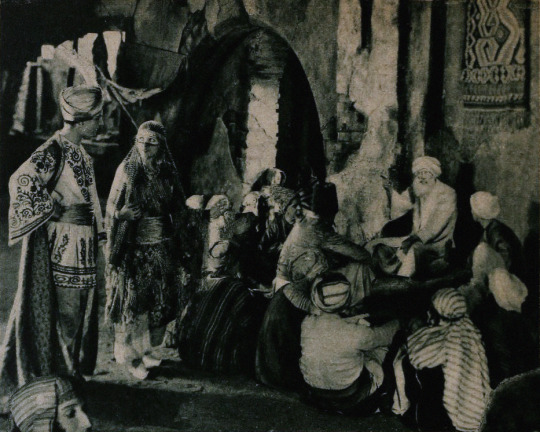
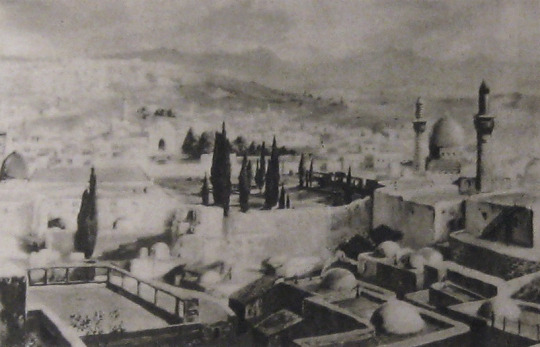
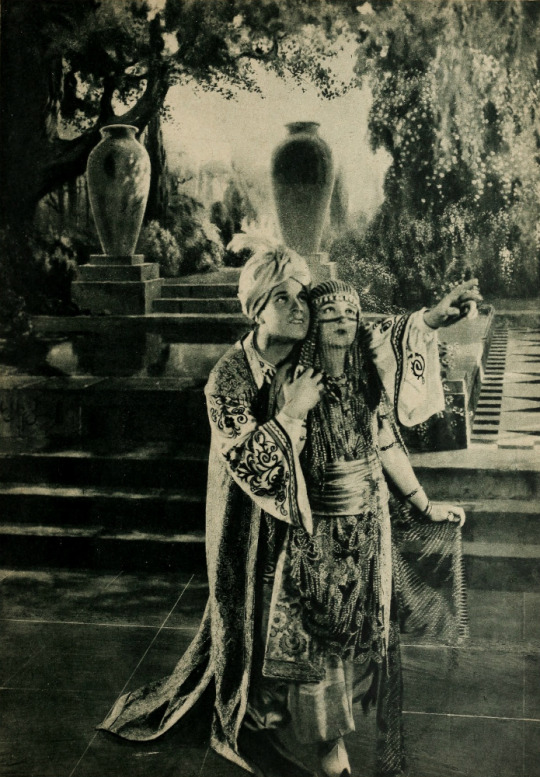
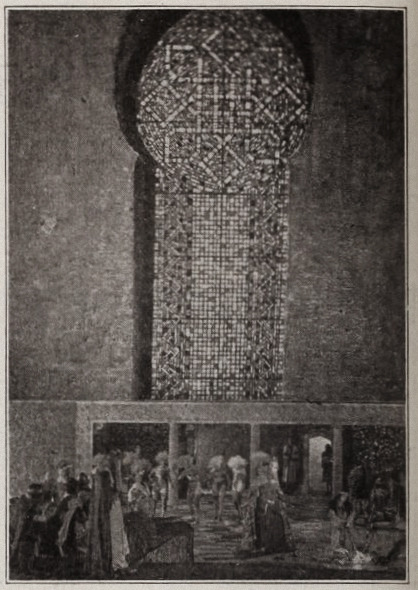
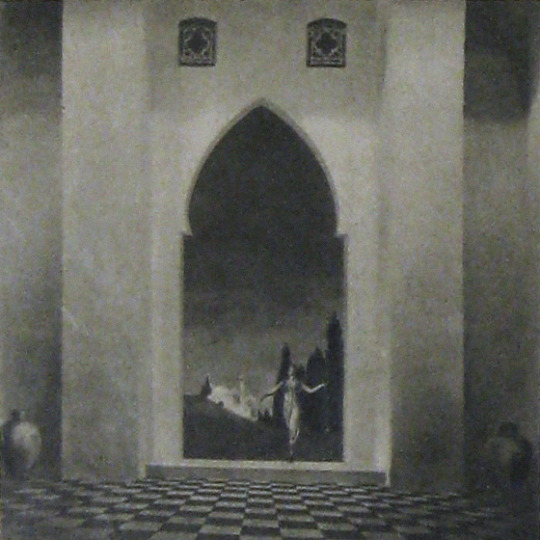
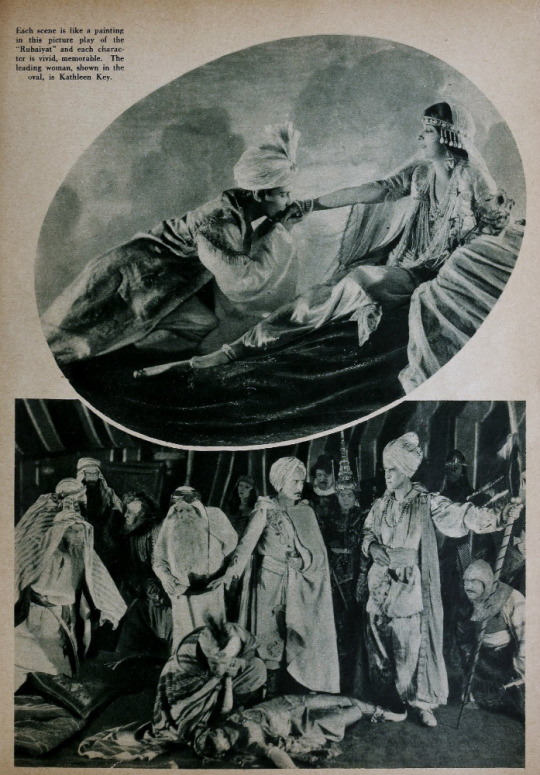
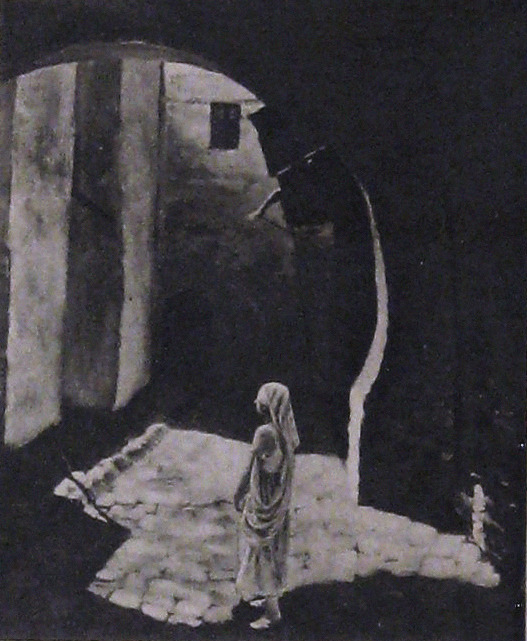
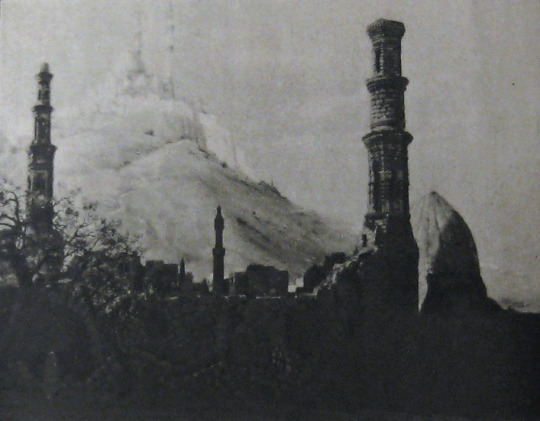
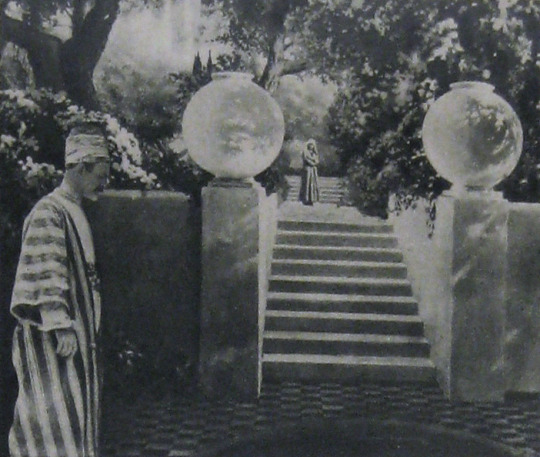
Alternate Titles: The Rubaiyat of Omar Khayyam, The Rubaiyat, Omar Khayyam, Omar
Direction: Ferdinand Pinney Earle; assisted by Walter Mayo
Scenario: Ferdinand P. Earle
Titles: Marion Ainslee, Ferdinand P. Earle (Omar), Louis Weadock (A Lover’s Oath)
Inspired by: The Rubaiyat of Omar Khayyam, as edited & translated by Edward FitzGerald
Production Manager: Winthrop Kelly
Camera: Georges Benoit
Still Photography: Edward S. Curtis
Special Photographic Effects: Ferdinand P. Earle, Gordon Bishop Pollock
Composer: Charles Wakefield Cadman
Editors: Arthur D. Ripley (The Rubaiyat of Omar Khayyam version), Ethel Davey & Ferdinand P. Earle (Omar / Omar Khayyam, the Director’s cut of 1922), Milton Sills (A Lover’s Oath)
Scenic Artists: Frank E. Berier, Xavier Muchado, Anthony Vecchio, Paul Detlefsen, Flora Smith, Jean Little Cyr, Robert Sterner, Ralph Willis
Character Designer: Louis Hels
Choreography: Ramon Novarro (credited as Ramon Samaniegos)
Technical Advisors: Prince Raphael Emmanuel, Reverend Allan Moore, Captain Dudley S. Corlette, & Captain Montlock or Mortlock
Studio: Ferdinand P. Earle Productions / The Rubaiyat, Inc. (Production) & Eastern Film Corporation (Distribution, Omar), Astor Distribution Corporation [States Rights market] (Distribution, A Lover’s Oath)
Performers: Frederick Warde, Edwin Stevens, Hedwiga Reicher, Mariska Aldrich, Paul Weigel, Robert Anderson, Arthur Carewe, Jesse Weldon, Snitz Edwards, Warren Rogers, Ramon Novarro (originally credited as Ramon Samaniegos), Big Jim Marcus, Kathleen Key, Charles A. Post, Phillippe de Lacy, Ferdinand Pinney Earle
Premiere(s): Omar cut: April 1922 The Ambassador Theatre, New York, NY (Preview Screening), 12 October 1923, Loew’s New York, New York, NY (Preview Screening), 2 February 1923, Hoyt’s Theatre, Sydney, Australia (Initial Release)
Status: Presumed lost, save for one 30 second fragment preserved by the Academy Film Archive, and a 2.5 minute fragment preserved by a private collector (Old Films & Stuff)
Length: Omar Khayyam: 8 reels , 76 minutes; A Lover’s Oath: 6 reels, 5,845 feet (though once listed with a runtime of 76 minutes, which doesn’t line up with the stated length of this cut)
Synopsis (synthesized from magazine summaries of the plot):
Omar Khayyam:
Set in 12th century Persia, the story begins with a preface in the youth of Omar Khayyam (Warde). Omar and his friends, Nizam (Weigel) and Hassan (Stevens), make a pact that whichever one of them becomes a success in life first will help out the others. In adulthood, Nizam has become a potentate and has given Omar a position so that he may continue his studies in mathematics and astronomy. Hassan, however, has grown into quite the villain. When he is expelled from the kingdom, he plots to kidnap Shireen (Key), the sheik’s daughter. Shireen is in love with Ali (Novarro). In the end it’s Hassan’s wife (Reicher) who slays the villain then kills herself.
A Lover’s Oath:
The daughter of a sheik, Shireen (Key), is in love with Ali (Novarro), the son of the ruler of a neighboring kingdom. Hassan covets Shireen and plots to kidnap her. Hassan is foiled by his wife. [The Sills’ edit places Ali and Shireen as protagonists, but there was little to no re-shooting done (absolutely none with Key or Novarro). So, most critics note how odd it is that all Ali does in the film is pitch woo, and does not save Shireen himself. This obviously wouldn’t have been an issue in the earlier cut, where Ali is a supporting character, often not even named in summaries and news items. Additional note: Post’s credit changes from “Vizier” to “Commander of the Faithful”]
Additional sequence(s) featured in the film (but I’m not sure where they fit in the continuity):
Celestial sequences featuring stars and planets moving through the cosmos
Angels spinning in a cyclone up to the heavens
A Potters’ shop sequence (relevant to a specific section of the poems)
Harem dance sequence choreographed by Novarro
Locations: palace gardens, street and marketplace scenes, ancient ruins
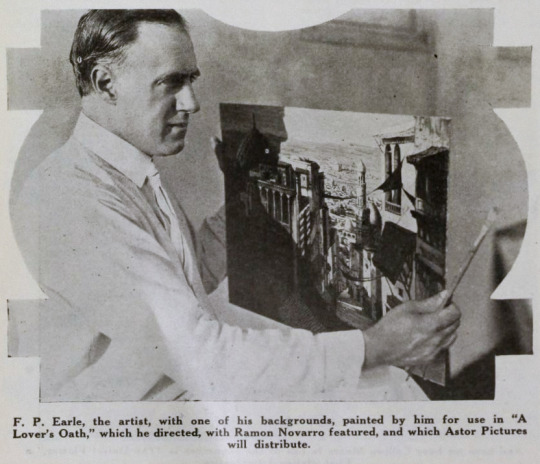
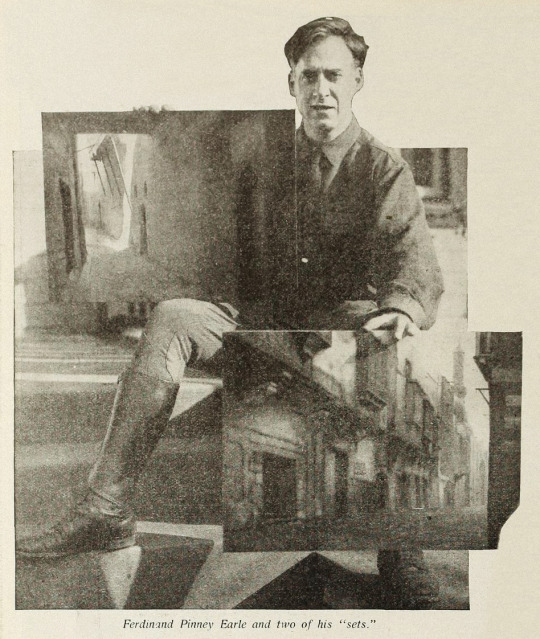
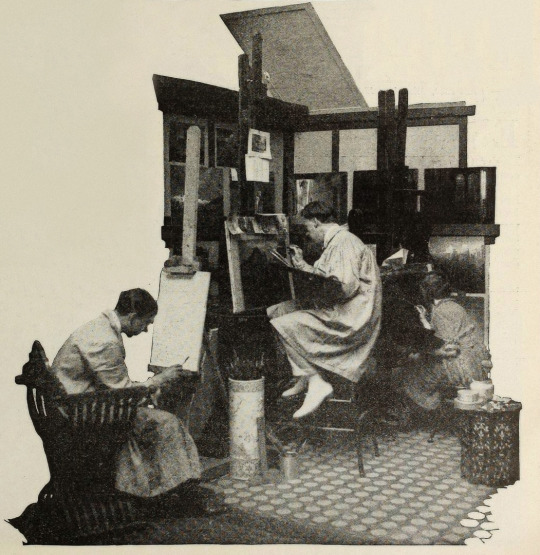
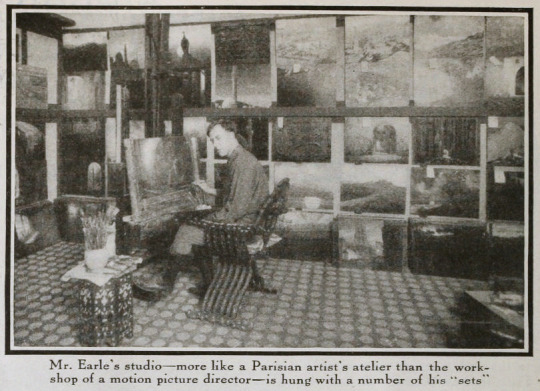
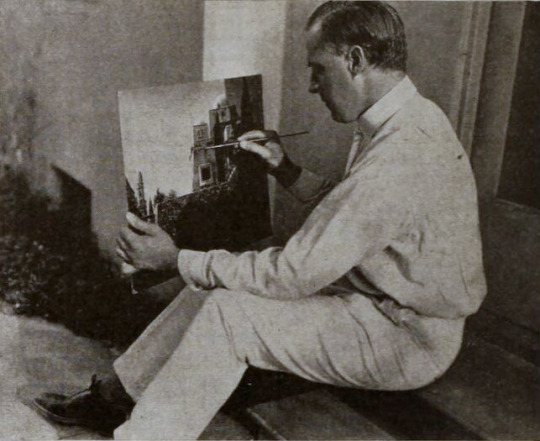
Points of Interest:
“The screen has been described as the last word in realism, but why confine it there? It can also be the last word in imaginative expression.”
Ferdinand P. Earle as quoted in Exhibitors Trade Review, 4 March 1922
The Rubaiyat of Omar Khayyam was a massive best seller. Ferdinand Pinney Earle was a classically trained artist who studied under William-Adolphe Bougueraeu and James McNeill Whistler in his youth. He also had years of experience creating art backgrounds, matte paintings, and art titles for films. Charles Wakefield Cadman was an accomplished composer of songs, operas, and operettas. Georges Benoit and Gordon Pollock were experienced photographic technicians. Edward S. Curtis was a widely renowned still photographer. Ramon Novarro was a name nobody knew yet—but they would soon enough.
When Earle chose The Rubaiyat as the source material for his directorial debut and collected such skilled collaborators, it seemed likely that the resulting film would be a landmark in the art of American cinema. Quite a few people who saw Earle’s Rubaiyat truly thought it would be:
William E. Wing writing for Camera, 9 September 1922, wrote:
“Mr. Earle…came from the world of brush and canvass, to spread his art upon the greater screen. He created a new Rubaiyat with such spiritual colors, that they swayed.” … “It has been my fortune to see some of the most wonderful sets that this Old Earth possesses, but I may truly say that none seized me more suddenly, or broke with greater, sudden inspiration upon the view and the brain, than some of Ferdinand Earle’s backgrounds, in his Rubaiyat. “His vision and inspired art seem to promise something bigger and better for the future screen.”
As quoted in an ad in Film Year Book, 1923:
“Ferdinand Earle has set a new standard of production to live up to.”
Rex Ingram
��Fifty years ahead of the time.”
Marshall Neilan
The film was also listed among Fritz Lang’s Siegfried, Chaplin’s Gold Rush, Fairbanks’ Don Q, Lon Chaney’s Phantom of the Opera and The Unholy Three, and Erich Von Stroheim’s Merry Widow by the National Board of Review as an exceptional film of 1925.
So why don’t we all know about this film? (Spoiler: it’s not just because it’s lost!)
The short answer is that multiple dubious legal challenges arose that prevented Omar’s general release in the US. The long answer follows BELOW THE JUMP!
Earle began the project in earnest in 1919. Committing The Rubaiyat to film was an ambitious undertaking for a first-time director and Earle was striking out at a time when the American film industry was developing an inferiority complex about the level of artistry in their creative output. Earle was one of a number of artists in the film colony who were going independent of the emergent studio system for greater protections of their creative freedoms.
In their adaptation of The Rubaiyat of Omar Khayyam, Earle and Co. hoped to develop new and perfect existing techniques for incorporating live-action performers with paintings and expand the idea of what could be accomplished with photographic effects in filmmaking. The Rubaiyat was an inspired choice. It’s not a narrative, but a collection of poetry. This gave Earle the opportunity to intersperse fantastical, poetic sequences throughout a story set in the lifetime of Omar Khayyam, the credited writer of the poems. In addition to the fantastic, Earle’s team would recreate 12th century Persia for the screen.
Earle was convinced that if his methods were perfected, it wouldn’t matter when or where a scene was set, it would not just be possible but practical to put on film. For The Rubaiyat, the majority of shooting was done against black velvet and various matte photography and multiple exposure techniques were employed to bring a setting 800+ years in the past and 1000s of miles removed to life before a camera in a cottage in Los Angeles.
Note: If you’d like to learn a bit more about how these effects were executed at the time, see the first installment of How’d They Do That.
Unfortunately, the few surviving minutes don’t feature much of this special photography, but what does survive looks exquisite:
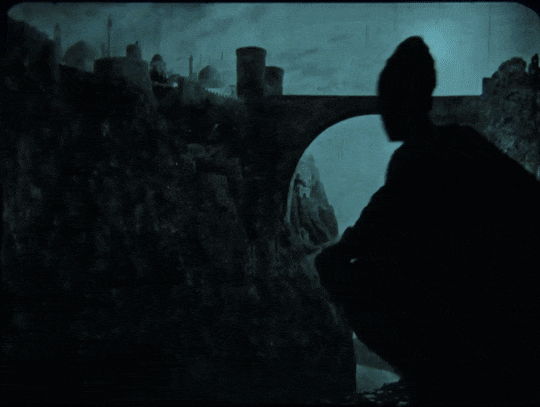
see all gifs here
Earle, knowing that traditional stills could not be taken while filming, brought in Edward S. Curtis. Curtis developed techniques in still photography to replicate the look of the photographic effects used for the film. So, even though the film hasn’t survived, we have some pretty great looking representations of some of the 1000s of missing feet of the film.
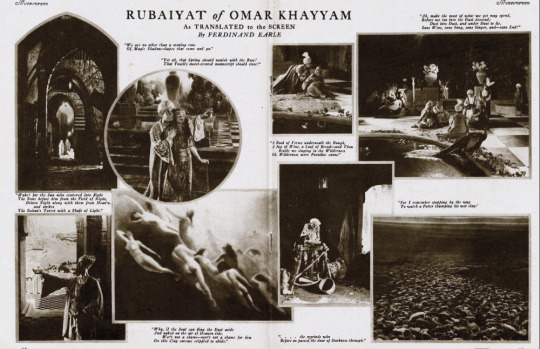
Nearly a year before Curtis joined the crew, Earle began collaboration with composer Charles Wakefield Cadman. In another bold creative move, Cadman and Earle worked closely before principal photography began so that the score could inform the construction and rhythm of the film and vice versa.
By the end of 1921 the film was complete. After roughly 9 months and the creation of over 500 paintings, The Rubaiyat was almost ready to meet its public. However, the investors in The Rubaiyat, Inc., the corporation formed by Earle to produce the film, objected to the ample reference to wine drinking (a comical objection if you’ve read the poems) and wanted the roles of the young lovers (played by as yet unknown Ramon Novarro and Kathleen Key) to be expanded. The dispute with Earle became so heated that the financiers absconded with the bulk of the film to New York. Earle filed suit against them in December to prevent them from screening their butchered and incomplete cut. Cadman supported Earle by withholding the use of his score for the film.
Later, Eastern Film Corp. brokered a settlement between the two parties, where Earle would get final cut of the film and Eastern would handle its release. Earle and Eastern agreed to change the title from The Rubaiyat of Omar Khayyam to simply Omar. Omar had its first official preview in New York City. It was tentatively announced that the film would have a wide release in the autumn.
However, before that autumn, director Norman Dawn launched a dubious patent-infringement suit against Earle and others. Dawn claimed that he owned the sole right to use multiple exposures, glass painting for single exposure, and other techniques that involved combining live action with paintings. All the cited techniques had been widespread in the film industry for a decade already and eventually and expectedly Dawn lost the suit. Despite Earle’s victory, the suit effectively put the kibosh on Omar’s release in the US.
Earle moved on to other projects that didn’t come to fruition, like a Theda Bara film and a frankly amazing sounding collaboration with Cadman to craft a silent-film opera of Faust. Omar did finally get a release, albeit only in Australia. Australian news outlets praised the film as highly as those few lucky attendees of the American preview screenings did. The narrative was described as not especially original, but that it was good enough in view of the film’s artistry and its imaginative “visual phenomena” and the precision of its technical achievement.
One reviewer for The Register, Adelaide, SA, wrote:
“It seems almost an impossibility to make a connected story out of the short verse of the Persian of old, yet the producer of this classic of the screen… has succeeded in providing an entertainment that would scarcely have been considered possible. From first to last the story grips with its very dramatic intensity.”
While Omar’s American release was still in limbo, “Ramon Samaniegos” made a huge impression in Rex Ingram’s Prisoner of Zenda (1922, extant) and Scaramouche (1923, extant) and took on a new name: Ramon Novarro. Excitement was mounting for Novarro’s next big role as the lead in the epic Ben-Hur (1925, extant) and the Omar project was re-vivified.
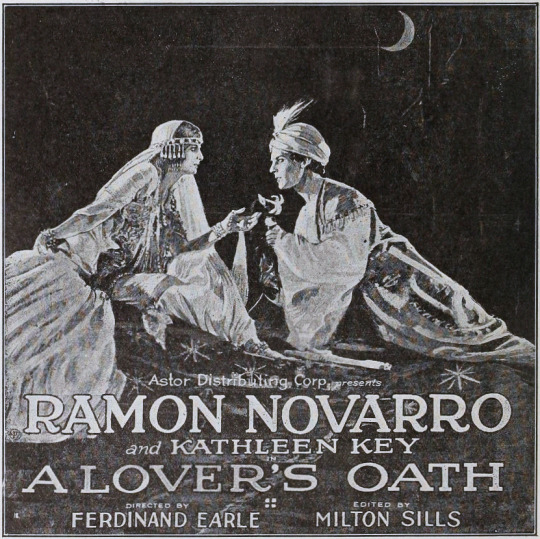
A new company, Astor Distribution Corp., was formed and purchased the distribution rights to Omar. Astor hired actor (note, not an editor) Milton Sills to re-cut the film to make Novarro and Key more prominent. The company also re-wrote the intertitles, reduced the films runtime by more than ten minutes, and renamed the film A Lover’s Oath. Earle had moved on by this point, vowing to never direct again. In fact, Earle was indirectly working with Novarro and Key again at the time, as an art director on Ben-Hur!
Despite Omar’s seemingly auspicious start in 1920, it was only released in the US on the states rights market as a cash-in on the success of one of its actors in a re-cut form five years later.
That said, A Lover’s Oath still received some good reviews from those who did manage to see it. Most of the negative criticism went to the story, intertitles, and Sills’ editing.
What kind of legacy could/should Omar have had? I’m obviously limited in my speculation by the fact that the film is lost, but there are a few key facts about the film’s production, release, and timing to consider.
The production budget was stated to be $174,735. That is equivalent to $3,246,994.83 in 2024 dollars. That is a lot of money, but since the production was years long and Omar was a period film set in a remote locale and features fantastical special effects sequences, it’s a modest budget. For contemporary perspective, Robin Hood (1922, extant) cost just under a million dollars to produce and Thief of Bagdad (1924, extant) cost over a million. For a film similarly steeped in spectacle to have nearly 1/10th of the budget is really very noteworthy. And, perhaps if the film had ever had a proper release in the US—in Earle’s intended form (that is to say, not the Sills cut)—Omar may have made as big of a splash as other epics.
It’s worth noting here however that there are a number of instances in contemporary trade and fan magazines where journalists off-handedly make this filmmaking experiment about undermining union workers. Essentially implying that that value of Earle’s method would be to continue production when unionized workers were striking. I’m sure that that would absolutely be a primary thought for studio heads, but it certainly wasn’t Earle’s motivation. Often when Earle talks about the method, he focuses on being able to film things that were previously impossible or impracticable to film. Driving down filming costs from Earle’s perspective was more about highlighting the artistry of his own specialty in lieu of other, more demanding and time-consuming approaches, like location shooting.
This divide between artists and studio decision makers is still at issue in the American film and television industry. Studio heads with billion dollar salaries constantly try to subvert unions of skilled professionals by pursuing (as yet) non-unionized labor. The technical developments of the past century have made Earle’s approach easier to implement. However, just because you don’t have to do quite as much math, or time an actor’s movements to a metronome, does not mean that filming a combination of painted/animated and live-action elements does not involve skilled labor.
VFX artists and animators are underappreciated and underpaid. In every new movie or TV show you watch there’s scads of VFX work done even in films/shows that have mundane, realistic settings. So, if you love a film or TV show, take the effort to appreciate the work of the humans who made it, even if their work was so good you didn’t notice it was done. And, if you’ve somehow read this far, and are so out of the loop about modern filmmaking, Disney’s “live-action” remakes are animated films, but they’ve just finagled ways to circumvent unions and low-key delegitimize the skilled labor of VFX artists and animators in the eyes of the viewing public. Don’t fall for it.
VFX workers in North America have a union under IATSE, but it’s still developing as a union and Marvel & Disney workers only voted to unionize in the autumn of 2023. The Animation Guild (TAG), also under the IATSE umbrella, has a longer history, but it’s been growing rapidly in the past year. A strike might be upcoming this year for TAG, so keep an eye out and remember to support striking workers and don’t cross picket lines, be they physical or digital!
Speaking of artistry over cost-cutting, I began this post with a mention that in the early 1920s, the American film industry was developing an inferiority complex in regard to its own artistry. This was in comparison to the European industries, Germany’s being the largest at the time. It’s frustrating to look back at this period and see acceptance of the opinion that American filmmakers weren’t bringing art to film. While yes, the emergent studio system was highly capitalistic and commercial, that does not mean the American industry was devoid of home-grown artists.
United Artists was formed in 1919 by Douglas Fairbanks, Charlie Chaplin, Mary Pickford, and D.W. Griffith precisely because studios were holding them back from investing in their art—within the same year that Earle began his Omar project. While salaries and unforgiving production schedules were also paramount concerns in the filmmakers going independent, a primary impetus was that production/distribution heads exhibited too much control over what the artists were trying to create.
Fairbanks was quickly expanding his repertoire in a more classical and fantastic direction. Cecil B. DeMille made his first in a long and very successful string of ancient epics. And the foreign-born children of the American film industry, Charlie Chaplin, Rex Ingram, and Nazimova, were poppin’ off! Chaplin was redefining comedic filmmaking. Ingram was redefining epics. Nazimova independently produced what is often regarded as America’s first art film, Salome (1923, extant), a film designed by Natacha Rambova, who was *gasp* American. Earle and his brother, William, had ambitious artistic visions of what could be done in the American industry and they also had to self-produce to get their work done.
Meanwhile, studio heads, instead of investing in the artists they already had contracts with, tried to poach talent from Europe with mixed success (in this period, see: Ernst Lubitsch, F.W. Murnau, Benjamin Christensen, Mauritz Stiller, Victor Sjöström, and so on). I’m in no way saying it was the wrong call to sign these artists, but all of these filmmakers, even if they found success in America, had stories of being hired to inject the style and artistry that they developed in Europe into American cinema, and then had their plans shot down or cut down to a shadow of their creative vision. Even Stiller, who tragically died before he had the opportunity to establish himself in the US, faced this on his first American film, The Temptress (1926, extant), on which he was replaced. Essentially, the studio heads’ actions were all hot air and spite for the filmmakers who’d gone independent.
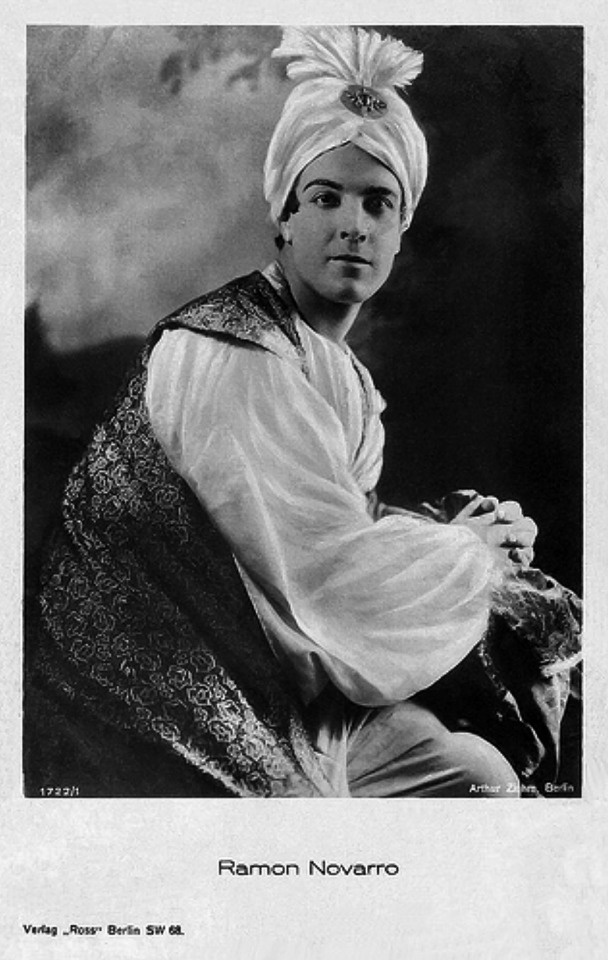
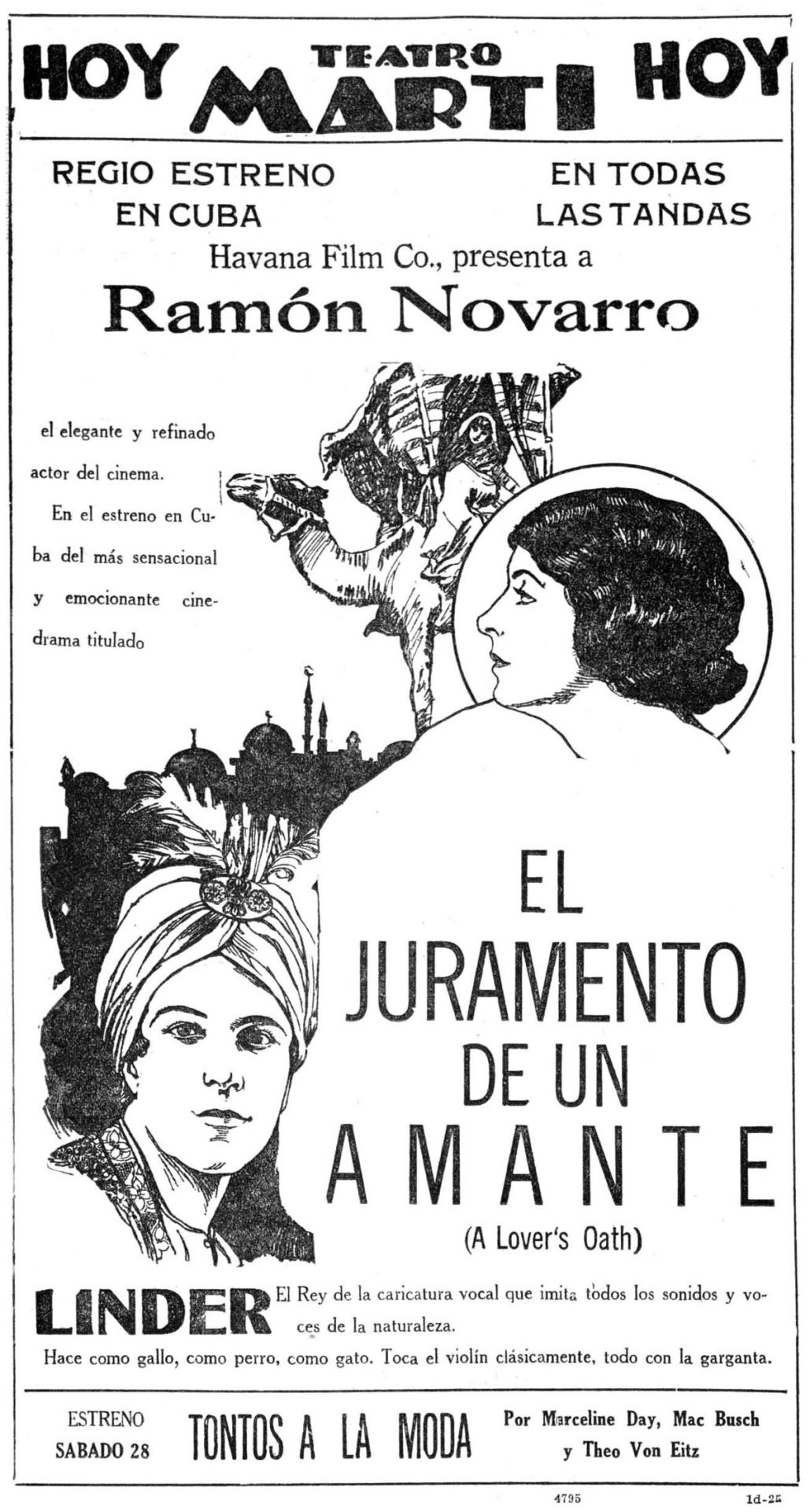
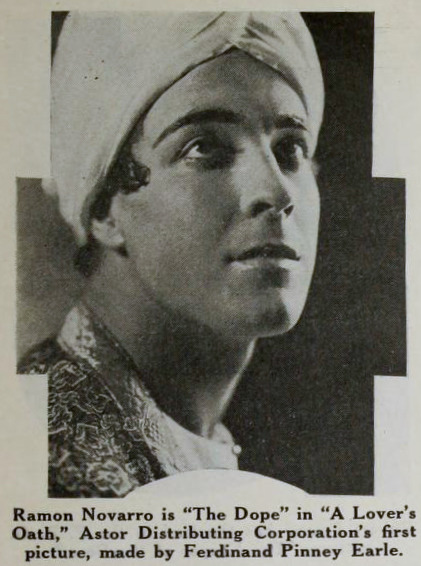
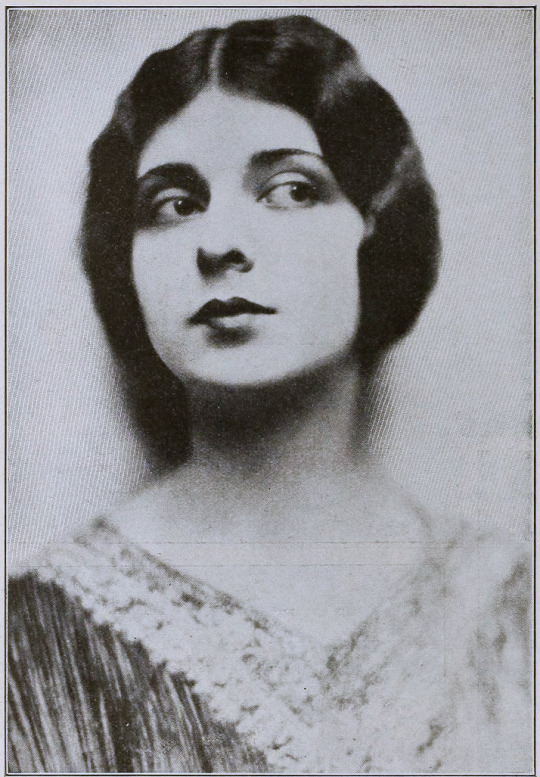
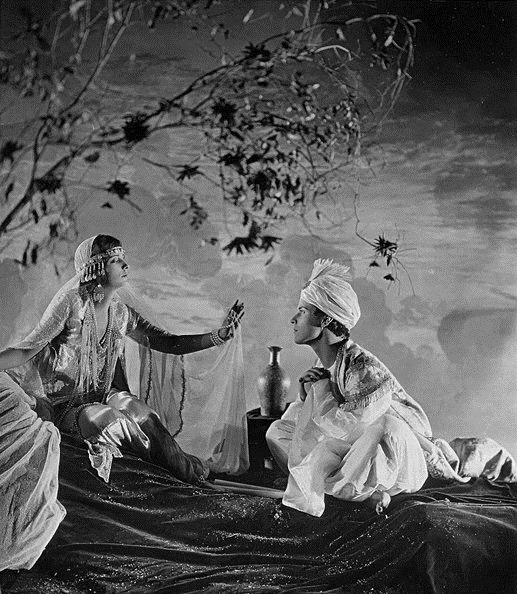
Finally I would like to highlight Ferdinand Earle’s statement to the industry, which he penned for from Camera in 14 January 1922, when his financial backers kidnapped his film to re-edit it on their terms:
MAGNA CHARTA
Until screen authors and producers obtain a charter specifying and guaranteeing their privileges and rights, the great slaughter of unprotected motion picture dramas will go merrily on.
Some of us who are half artists and half fighters and who are ready to expend ninety per cent of our energy in order to win the freedom to devote the remaining ten per cent to creative work on the screen, manage to bring to birth a piteous, half-starved art progeny.
The creative artist today labors without the stimulus of a public eager for his product, labors without the artistic momentum that fires the artist’s imagination and spurs his efforts as in any great art era.
Nowadays the taint of commercialism infects the seven arts, and the art pioneer meets with constant petty worries and handicaps.
Only once in a blue moon, in this matter-of-fact, dollar-wise age can the believer in better pictures hope to participate in a truely [sic] artistic treat.
In the seven years I have devoted to the screen, I have witnessed many splendid photodramas ruined by intruding upstarts and stubborn imbeciles. And I determined not to launch the production of my Opus No. 1 until I had adequately protected myself against all the usual evils of the way, especially as I was to make an entirely new type of picture.
In order that my film verison [sic] of the Rubaiyat of Omar Khayyam might be produced under ideal conditions and safeguarded from intolerable interferences and outside worries, I entered into a contract with the Rubaiyat, Inc., that made me not only president of the corporation and on the board of directors, but which set forth that I was to be author, production manager, director, cutter and film editor as well as art director, and that no charge could be made against the production without my written consent, and that my word was to be final on all matters of production. The late George Loane Tucker helped my attorney word the contract, which read like a splendid document.
Alas, I am now told that only by keeping title to a production until it is declared by yourself to be completed is it safe for a scenario writer, an actor or a director, who is supposedly making his own productions, to contract with a corporation; otherwise he is merely the servant of that corporation, subject at any moment to discharge, with the dubious redress of a suit for damages that can with difficulty be estimated and proven.
Can there be any hope of better pictures as long as contracts and copyrights are no protection against financial brigands and bullies?
We have scarcely emerged from barbarism, for contracts, solemnly drawn up between human beings, in which the purposes are set forth in the King’s plainest English, serve only as hurdles over which justice-mocking financiers and their nimble attorneys travel with impunity, riding rough shod over the author or artist who cannot support a legal army to defend his rights. The phrase is passed about that no contract is invioliable [sic]—and yet we think we have reached a state of civilization!
The suit begun by my attorneys in the federal courts to prevent the present hashed and incomplete version of my story from being released and exhibited, may be of interest to screen writers. For the whole struggle revolves not in the slightest degree around the sanctity of the contract, but centers around the federal copyright of my story which I never transferred in writing otherwise, and which is being brazenly ignored.
Imagine my production without pictorial titles: and imagine “The Rubaiyat” with a spoken title as follows, “That bird is getting to talk too much!”—beside some of the immortal quatrains of Fitzgerald!
One weapon, fortunately, remains for the militant art creator, when all is gone save his dignity and his sense of humor; and that is the rapier blade of ridicule, that can send lumbering to his retreat the most brutal and elephant-hided lord of finance.
How edifying—the tableau of the man of millions playing legal pranks upon men such as Charles Wakefield Cadman, Edward S. Curtis and myself and others who were associated in the bloody venture of picturizing the Rubaiyat! It has been gratifying to find the press of the whole country ready to champion the artist’s cause.
When the artist forges his plowshare into a sword, so to speak, he does not always put up a mean fight.
What publisher would dare to rewrite a sonnet of John Keats or alter one chord of a Chopin ballade?
Creative art of a high order will become possible on the screen only when the rights of established, independent screen producers, such as Rex Ingram and Maurice Tourneur, are no longer interferred with and their work no longer mutilated or changed or added to by vandal hands. And art dramas, conceived and executed by masters of screen craft, cannot be turned out like sausages made by factory hands. A flavor of individuality and distinction of style cannot be preserved in machine-made melodramas—a drama that is passed from hand to hand and concocted by patchworkers and tinkerers.
A thousand times no! For it will always be cousin to the sausage, and be like all other—sausages.
The scenes of a master’s drama may have a subtle pictorial continuity and a power of suggestion quite like a melody that is lost when just one note is changed. And the public is the only test of what is eternally true or false. What right have two or three people to deprive millions of art lovers of enjoying an artist’s creation as it emerged from his workshop?
“The Rubaiyat” was my first picture and produced in spite of continual and infernal interferences. It has taught me several sad lessons, which I have endeavored in the above paragraphs to pass on to some of my fellow sufferers. It is the hope that I am fighting, to a certain extent, their battle that has given me the courage to continue, and that has prompted me to write this article. May such hubbubs eventually teach or inforce a decent regard for the rights of authors and directors and tend to make the existence of screen artisans more secure and soothing to the nerves.
FERDINAND EARLE.
---
☕Appreciate my work? Buy me a coffee! ☕
Transcribed Sources & Annotations over on the WMM Blog!
See the Timeline for Ferdinand P. Earle's Rubaiyat Adaptation
#1920s#1923#1925#omar khayyam#ferdinand pinney earle#ramon novarro#independent film#american film#silent cinema#silent era#silent film#classic cinema#classic movies#classic film#film history#history#Charles Wakefield Cadman#cinematography#The Rubaiyat#cinema#film#lost film
51 notes
·
View notes
Text
Music of TURN
Round 17
(I didn't have time to finish round 18 because it's homecoming week and I'm in marching band so only one a day from now on)
Hush
Well I've gone into song histories, why not go into thematics and other observations. One thing I've noticed is that the soundtrack of TURN leans heavily on strings. One would expect that in a score, but it's mostly solo strings instead of an orchestral group.
Now I have no idea if this was intentional, but with strings, piano (technically harpsichord), and voice being the most prevalent melodic instruments in colonial America, it would be fitting to have these instruments dominate the soundtrack. Again, I don't have any experience in this field of music, it might have just have been the easiest instrument to get in the show. But a lack of woodwinds and brass in the featured songs makes me wonder. (For anyone wondering, the reason for a lack of the other instruments is that they would only really be used in orchestras, not soloistically. No court composition in America along with a lack of talent because if you played those instruments, you likely didn't have much reason to go across the Atlantic.)
youtube
A Lyke Wake Dirge
1.10: The Battle of Setauket
So now that we know the history (if you need a refresher. Lyke = corpse, Wake = the time between death and funeral/burial, Dirge = lament/funeral song. And the lyrics tell of a souls journey to purgatory) let's look at how it fits.
It represents the death of not only Mr. Baker, but Abe being his killer. Early season one has Abe swearing to never take a life. This is the death of that part of his character. As we see him more and more willing to kill. First understandably with Simcoe, and to Wakefield (I believe) and finally his worst moment when plotting to kill Hewlett.
The fire of the house plays into the image of purgatory. Most of what we associate with purgatory (including the song) comes from Catholic doctrine. Where a soul goes under temporary punishment to purify/purge the soul of sin before entering heaven. Fire is associated for a multitude of reasons (from pagan, to analogies, to scripture) and I am not a religious studies major so I won't go too in depth.
But in this instance I would see the burning house as almost the opposite. From the ashes of the house comes the root cellar, his base for spywork. Again, I have no clue if I am looking far too into it, but I see the connections.
Complete side note that doesn't add much, I just typed it out hoping it would fit and then realized it didn't. From the show, I'm going to guess that they are Presbyterian. As Ben's father (historically) was Presbyterian and it is known in the show that the Woodhull's attended Reverend Tallmadge's church. I don't know much on 18th century Presbyterianism, but I would imagine that the views on purgatory haven't changed. In that it is not a necessary step. But they would certainly be aware of the concept.
youtube
#turn music bracket#turn: washington's spies#turn amc#turn washingtons spies#culper spy ring#anna strong#mary woodhull#abraham woodhull#18th century music#music history#turn music#Youtube
12 notes
·
View notes
Text
The Tagalong - Epilogue
Fergus disobeys Jamie’s order to return to Lallybroch and instead follows them all the way to Craigh na Dun, inadvertently following Claire through the stones.
Part One, Part Two, Part Three, Part Four, Part Five, Part Six, Part Seven, Part Eight, Part Nine, Part Ten, Part Eleven, Part Twelve, Part Thirteen, Part Fourteen, Part Fifteen, Part Sixteen, Part Seventeen, Part Eighteen, Part Nineteen, Part Twenty, Part Twenty-One, Part Twenty-Two, Part Twenty-Three
********************************************
Reverend Wakefield had always known about the activities his housekeeper engaged in at Craigh na Dun on various feast days, but he’d always turned a blind eye. Until he and Mrs. Graham had watched Claire Beauchamp touch the stones atop that hill with her daughter clutched in her arms, and vanish.
She’d gone to find Roger and Fergus, to bring them back. But she’d promised if she couldn’t bring Roger back, she would at least make sure he was safe and not alone. After sitting watching the circle of stones for the better part of six hours, they gave up waiting on site and decided to wait at home. It could be days before she and the boys turned up… if they turned up at all.
But they didn’t have to wait long for some answers.
As Mrs. Graham served tea in the library that afternoon, there was a knock at the door. A messenger sent with a letter addressed to Reverend Wakefield—a letter from Claire and Roger, dated 1941. They had left it with one of the reverend’s older parishioners, requesting it be delivered on a specific date. The messenger was her grandson who shrugged at what seemed to be a whim of his gran’s, a story and errand that suggested her mind was going, but at her age it didn’t hurt to humor her and the reverend would understand.
Mrs. Graham thanked the young man and then ushered him out so she could find out what the letter said.
Claire had found Roger but Fergus appeared to have ended up somewhere else. She doubted she’d be able to bring Roger back but promised he would be safe with her wherever — whenever — they finally landed themselves. Roger had included a small paragraph, his hand shakier than Claire’s. He told his father that he loved him and that he would make his way back when he was old enough to make the journey on his own.
And so, Reverend Wakefield waited.
It was the year Roger would have turned fifteen that Mrs. Graham invited Reverend Wakefield to come to Craigh na Dun after the feast day ceremonies had concluded. She packed a luncheon and they sat side by side on a fallen tree, listening to the wind whistling through the stones and groaning in the tree limbs.
The year Roger would’ve turned twenty, Reverend Wakefield began looking through the local histories, combing for any mention of someone who might be Roger. He didn’t know how far back he might need to go, so he simply started in 1941 and worked backward from there. He was able to eliminate Wakefields from his own family records and located a few possibilities, but nothing definitive — nothing reassuring.
He still made the drive to Craigh na Dun the morning of each of Mrs. Graham’s druidic ceremonies, but he took his time about it. He clung to hope but it was with a practical grip, one that told him that a lot could happen in five, ten, fifteen years. Perhaps it was the stones themselves to blame. They had taken Roger without warning. Perhaps they now refused to let him return and he made similar journeys to the circle to try his hand, only to find himself stuck.
Mrs. Graham wasn’t waiting at the base of the hill in her usual spot when Reverend Wakefield pulled up. He worried that she might have had some sort of medical episode and rushed from the car — they had both begun to show signs of their age these last few years.
Winded, Reverend Wakefield slowed as he reached the summit of the hill and found Mrs. Graham seated on the fallen tree with a tall, dark-haired young man who could only be Roger and a red-headed lass who looked like she couldn’t be much older than seventeen or eighteen.
“Roger?” Reverend Wakefield cried at the sight.
The dark head whipped toward him and a glowing smile of recognition burst over his face.
“Da!” he exclaimed, running across the stone circle and wrapping the reverend in a powerful hug. “I told ye I’d come back. I’m only sorry I took so long.”
The young woman had risen and stepped closer, though she hesitated and shrank a bit when Reverend Wakefield turned to look at her. Roger noticed and, clapping his father on the back, took a step back and held out a hand to the lass.
“Da, ye’ll maybe remember Bree — though I’m afraid she cannae claim to remember you,” he apologized with a teasing smirk at Brianna.
Her cheeks flushed and she swatted playfully at Roger’s hand.
“Aye, and I’ve a good enough excuse, havin’ only been a wean of two at the time,” she said, rolling her eyes.
“Claire Beauchamp’s daughter?”
“Fraser, actually,” Brianna spoke up, then flushed again. “Mam, that is.” She looked to Roger and cleared her throat.
“Bree and I were handfast a little over a week ago,” Roger explained. “We wanted her whole family to be there so it was done at Lallybroch before we left. Her parents brought her siblings with them to see us off. But… you see… I was hoping that you would marry us properly.”
Mrs. Graham laughed with joy, clapping her hands and rushing in to hug the young couple. The flurry she caused helped hide Reverend Wakefield’s speechlessness.
“So… ye’ll do it?” Roger asked, looking to his father.
Suddenly, Reverend Wakefield saw and truly recognized the lad he’d taken in and adopted. The hope and pleading in Roger’s green eyes was the same as whenever he’d asked for just one more biscuit before bed or if Fergus could stay the night or some other treat he desired.
And as with the majority of those requests, Reverend Wakefield felt himself nodding his agreement, just to see the bright smile break across Roger’s slightly sunburnt face.
“It’ll no necessarily be easy—the two of ye disappeared some time ago and it’ll put everyone in a tizzy to see ye back again,” he cautioned. “But I’m sure it can be managed.”
Mrs. Graham was nodding vigorously. “There’s nae time to lose,” she remarked, starting to head down the hill. “Come, Reverend. Give them a moment,” she whispered, slipping her arm through his and ushering him away with her. “Leave them to say their last goodbyes.”
Reverend Wakefield glanced over his shoulder at his returned nephew and the young bride he’d chosen, still suffering from a bit of disbelief that they were there at all.
Roger had slipped his arm around Brianna and was holding her close, a supportive gesture as she turned back to look at the stones they’d traveled through a short time earlier.
Everyone knew that Roger would go back through the stones one day. He’d never been easy about how things were left with his adoptive father and he wouldn’t be until he saw him again. But as they’d gotten older, it had also gotten harder and harder for Roger to make himself go. Not if it meant leaving Brianna behind.
So she’d chosen to go with him. Even when it meant leaving her own family behind, perhaps forever. It was why they’d had such a party come with them to see them off.
They’d all climbed the hill, though the rest of the Frasers had taken great care to keep well away from the stones. Jamie heard nothing but kept a solid hold on William while Fergus kept his eye on Jacob. Patience refused to be put down, preferring to nuzzle against Claire’s neck while she watched her older brothers take turns hugging Brianna and then Roger and Fergus embrace briefly.
Roger and Brianna had a tight hold of each other before glancing back one last time. Claire smiled and Jamie nodded, and with that, they’d pressed their hands to the stone and were gone.
“Ye’ll see some of them again,” Roger murmured. “There’s no way yer younger brothers will pass on the chance for an adventure.”
“That’s what I’m afraid of,” Brianna told him. “They dinna ken the dangers of it, to say nothing of the grief they’ll visit on Mam and Da.”
“It will grieve them less do they ken there’s a safe place for them here, should they take it in their wee minds to cause such trouble,” Roger reassured her. “And I cannae wait to build that place wi’ you, Bree.” He kissed her temple and then rested his head on her chin as she melted into him and let his comfort steel her for what still lay ahead.
“Yer father and Mrs. Graham will be thinkin’ we went back again ourselves if we keep them waitin’ any longer.”
“After you, Mrs. Mackenzie,” Roger teased, enjoying the self-conscious flush it brought to Brianna’s cheeks.
#glad and sad this one's wrapped up#open to one shot prompts for the years between part 23 and this epilogue#;mod lenny#The tagalong#canon divergence#fergus through the stones au#featuring: roger#featuring: bree#featuring: mrs. graham#featuring: reverend wakefield#featuring: fergus
181 notes
·
View notes
Text
Lore Episode 19: Bite Marks (Transcript) - 26th October 2015
tw: death, graveyards, corpses, details of decomposition, ghosts Disclaimer: This transcript is entirely non-profit and fan-made. All credit for this content goes to Aaron Mahnke, creator of Lore podcast. It is by a fan, for fans, and meant to make the content of the podcast more accessible to all. Also, there may be mistakes, despite rigorous re-reading on my part. Feel free to point them out, but please be nice!
[Announcement of upcoming live shows (now in the past)]
In 1890, the tiny Greek village of Messaria on the island of Kythnos was plagued by something otherworldly. Whatever it was, the villagers claimed that it would enter their homes, eat their food, break their dishes and then move on to repeat itself elsewhere. They named this creature “Andilaveris”, and they claimed it was a vrykolakas, a close cousin to the traditional European vampire. Andilaveris drank their wine and smashed their belongings, howling like a wolf and making a loud, horrible mess, but the most interesting feature of this story is that no one actually saw Andilaveris do these things. The villagers claimed to witness it all, of course, but they said he was invisible; he was, in essence, a noisy spirit, but the only cultural lens they were able to view him through was as a vampire. And they weren’t the first: between 1591 and 1923, people across Europe told similar stories – an invisible monster that raided their homes and destroyed their belongings. Today, we see events like these play out across the screens of our local move theatre. Hollywood has been fascinated with invisible, violent forces since the early 1980s, when they brought us Poltergeist. What once was looked on as overly spiritual and easily disproven is now attracting the attention of popular culture, but poltergeists have a history that runs far deeper than just the 1980s. From first century Roman accounts to modern newspapers, stories of humans interacting with angry ghosts have been told for a very, very long time. Some are clearly hoaxes; some are misinterpretations of natural events; oftentimes they are a grab for attention or a cry for help; but sometimes, on very rare occasions, a story comes along that is nothing short of haunting. I’m Aaron Mahnke, and this is Lore.
The word “poltergeist” evokes a number of ideas for most people. Most think about the movie. Some picture objects being thrown around a room by invisible hands. You might even envision the sound of chains, or doors creaking open in the night. And they wouldn’t be too far from the truth – the word “poltergeist” is German, and it literally means “noisy spirit”. The idea is that, while the typical ghost story only uses one of our five senses, our sight, stories of poltergeists can often tap all five. Most poltergeist accounts reference the same types of activity: objects that are mysteriously moved or broken; noises in and around the house; physical attacks such as biting, pinching, hitting, and even tripping. Some people even claim to have seen objects, or other people, levitated by an unseen force, and unlike some folklore, stories of noisy spirits are nearly universal. Similar manifestations have been reported by witnesses in dozens of cultures for centuries, from Japan and Brazil to Australia and the United States. To those who view widespread distribution as a major sign of proof, poltergeists have become an indisputable fact. One of the earliest records of a poltergeist encounter actually comes from the 1st century Jewish historian, Flavius Josephus. He recorded an exorcism in 94AD that sounds eerily similar to those of us familiar with modern exorcism tales. In his report, he describes how, as the spirit was being driven from the person, a bowl of water all the way across the room was suddenly overturned by an invisible hand. Jacob Grimm, half of the famous Grimm brothers who recorded many of the stories we remember from our childhood, also wrote more scholarly books. In his book Deutsche Mythologie, Grimm recorded a story from the German town of Bingen am Rhine that took place in the 4th century. According to the story, people were pulled out of their beds by an unseen force; loud noises could be heard, as if someone were knocking on the walls or floor; stones were even thrown, but the person – or spirit – who did the throwing was never found. Gerald of Wales, the famous clergyman and chronicler, wrote in 1191 of a house in Pembrokeshire that was filled with poltergeist activity. Here, the unseen spirit was said to have thrown handfuls of dirt as well as tearing clothing and breaking objects in the house. Most frightening to those who experienced it, though, was the fact that this spirit was also said to vocalise all the secrets of the people in the room.
Similar stories have been recorded countless times in the centuries since Gerald’s day. In one story from the early 1700s, one family encountered unusual activity in the church rectory, in Epworth, Lincolnshire. Reverend Samuel Wesley and his wife, Susanna, had 10 children and had lived in the house since it had been built, shortly after the previous rectory burnt to the ground in 1709. During the winter of 1716 to 1717, the family began to experience regular noises. They would hear knocking on the walls and doors, or the sounds of people running up and down the stairs. The house was searched from top to bottom, hoping to find the person responsible, but no cause was found. They even named the noisy spirit “Old Jeffrey”, and it was said that the spirit made himself visible on Christmas day that winter. Shortly after, the noises stopped, never to happen again. In more modern times, one well-known story is that of the Black Monk of Pontefract. There, in the growing community just outside the city of Wakefield in West Yorkshire, England, reports began to circulate about the most violent poltergeist in European history. Joe and Jean Pritchard lived at 30 East Drive in 1970 along with their son, Phillip, and daughter, Diane. According to their report, they were plagued by problems in the house from the start: objects were thrown, the temperature in rooms would suddenly drop, and they would even find puddles on the floor. They named the spirit Fred, and soon learnt that Fred was not just mischievous, but also violent. Not only did the spirit throw eggs and take bites out of their sandwiches, but it also dragged their 12-year-old daughter, Diane, up the stairs by her neck, leaving handprints on her skin. After Fred attempted to strangle Diane a second time, this time with an electrical cord, the family asked for help. The police were brought in, as were a number of psychics and paranormal researchers. Even the mayor came by for a visit, but nothing seemed to help. Eventually, the Pritchard’s moved away, and the noises inside Number 30 stopped. But according to the woman who lives next door to the house that’s connected to Number 30, Fred the ghost hasn’t gone anywhere. He still makes frequent visits to her side of the wall, and although he’s usually very quiet, she claims that he sometimes stands in the room and glares at her with menacing eyes. Under the scrutiny of historical research, though, most recorded poltergeist stories have been shown to be frauds. Oftentimes they were nothing more than pranks put on by the homeowner, or the person who stood to gain the most from the attention. But every now and then, a story comes along that defies explanation, and when that story involves violent physical attacks and a serious threat to human lives, it becomes downright chilling.
In 1999, a homeless man broke into a large tomb in a prominent cemetery known as Greyfriars, in Edinburgh, Scotland. It was cold and rainy that night, and the man was looking for shelter. I might have gone elsewhere to find a warm, dry place to sleep, but when you’re down and out, anything will do, right? This man wondered through the graveyard in the dark until he found a large mausoleum, something that looked large enough to allow him to get out of the elements and sleep in relative comfort. This one was known as “The Black Mausoleum”, and it was enormous. It resembles a large rotunda, with the spaces between the pillars filled in with cut stone. When the homeless man stumbled upon this tomb, it was exactly what he had been looking for, and had plenty of room to stretch out and sleep in, and it was dry. So, he did what anyone desperate for shelter would do: he broke in. Because it’s rare to find a tomb with windows, the interior of the vault was completely black. Thankfully, the man had a lighter or some other form of illumination, and he used it to explore. In the centre of the floor was a large, iron grate, similar to what you might find over a sewer drain or in the sidewalk over a subway tunnel in New York City. Beneath the grate was a staircase that curved and twisted its way down to a lower level. I know - this sounds like something out of an Indiana Jones movie, but believe me, it’s real, and it gets worse, because beneath the first level, at the bottom of the stairs, this homeless man discovered four wooden coffins. They were, of course, very old, and the man probably assumed that, because of this, they would contain valuables that he could sell. I imagine he set down whatever it was he was using as a light on one of the nearby coffins, and then began to try and open another one of them. When it didn’t work, he resorted to smashing the lid to break the lock, and that’s when he took a step backward. The boards in the floor must have been very old. The man must have put his full weight in just the right spot. All the possibilities must have lined up perfectly in that moment. A brief groan from the wooden floor was followed by a loud crash, and the man tumbled backward into a long-forgotten pit, some part of an even lower level that dated back centuries. The best guess that historians can make is that the pit was actually used for the illegal dumping of bodies in the wake of the plague, in 1645. What they do know for sure, however, is that the pit was sealed very well. So sealed, in fact, that when this homeless man landed on the pile of 350-year-old corpses, they were surprisingly well preserved. They weren’t skeletal and dry, like you might expect. No, these bodies were wet with something that resembled green slime. The clothing was intact, albeit ragged and torn, and their hair was matted to their shrivelled heads, and of course, there were an overwhelming stench in the air. The man bolted, and I don’t think there’s a single on of us who could blame him for doing so. Fearing for his life, the man climbed out of the pit, up the stone stairs to the main vault, and out the door. He was in such a hurry that he even fell and cut his head on the doorway to the mausoleum. Outside, a security guard was patrolling the area with his canine partner, when the homeless man burst out of the tomb. Now, maybe it was the blood running down the man’s face, maybe it was the white dust that covered him from head to toe because of his adventures… below the tomb, maybe it was just the simple sight of a pale, shrieking figure charging out from a dark crypt – whatever the reason, when the guard saw the man, he turned tail and ran, just as fast as he could, away from the darkness of the cemetery, and into the city beyond.
As difficult as it is to imagine, the frightening events of that night in 1999 were just the beginning. Like a tiny spark igniting an entire barn, the break-in at the Black Mausoleum set in motion something that no one has since been able to adequately explain. It turns out the mausoleum belonged to none other than Sir George Mackenzie, a man who had died in 1690. Along with being a lawyer and Lord Advocate to the crown of Scotland, Mackenzie had been instrumental in sending hundreds of Presbyterian Covenanters to their death in the late 17th century. Today, he is known as “Bloody Mackenzie”, and according to the local reports, this invasion of his resting place set off a series of events that can only be blamed on a very angry spirit, and it didn’t wait very long. They day after the break-in, a woman was taking a walk through the cemetery. It’s unclear whether she was a tourist interested in seeing the Covenanters prison area of the graveyard, or just a local out for a walk, but when she drew near to the mausoleum, she decided to peer through one of the two small grates in the tomb door. As she stood there, a gust of cold wind rushed out of the tomb with such force that she claimed it knocked her backward and off the stone steps, landing on her back. A few days later, another woman was found unconscious on the sidewalk outside the tomb, sprawled out on her back as if she had fallen. She claimed that invisible hands had grabbed her around the throat and attempted to strangle her. When she pulled back the collar of her shit, her neck was ringed by a series of dark bruises, as if fingertips had been driven into her skin. Soon after, another tourist, this time a young man, experienced something eerily similar. For others, though, the consequences of visiting the tomb were more physical and lasting – some people have found scratches on their arms, neck or chest, while others have discovered burn marks. Many of these injuries disappear almost as quickly and mysteriously as they appeared. Some, though, claim to have been permanently scarred. All told, people have broken fingers, felt their hair pulled, been pushed or struck, and all by an unseen force. People have even felt nauseous or numb, or both, and not just one or two people, but hundreds. Sometimes these attacks happen near the tomb, and sometimes they happen later.
One particular story stands out: a former police officer reported participating in a tour of the cemetery a few years ago. After returning to his hotel room that night, he picked up the book he had been given on the tour that covered the details of the haunting. As he did, he felt a sharp pain, as if someone were trying to burn him. When he ran to the mirror to check, he found five deep scratches on his neck, beneath his chin. The following morning, the officer visited his mother and told her what happened. He also gave her the book – according to him, he couldn’t stand to have it around any longer, and so he left it at her house. When he called her later and asked about the book, he caught her in the bathroom. She was standing in front of the mirror, examining five, long scratches on her throat. All told, nearly 400 people have claimed to have been attacked by something other-worldly around the tomb; almost 200 of those people have actually passed out during a ghost tour. Sometimes, every person on a tour will feel the exact same thing. Oftentimes, complete strangers will independently report the exact same experience. The odd experiences extend beyond the tours. An unusually high number of dead animals have been found in the area around Mackenzie’s tomb; unexplainable fires have broken out in nearby buildings; people have reported cold spots, and the usual photographic and electronic malfunctions have occurred there as well. Some have gone looking for an explanation for such a large number of unusual reports, but the theories are as varied as the types of attacks. One idea tries to connect the unlikely dots between the nearby Edinburgh University’s artificial intelligence unit, which uses high voltage machinery, and the sandstone deep undergrown, beneath the ancient cemetery. The porous stone, they say, absorbs the energy and releases it later, causing odd experiences. But this is a difficult theory to swallow, especially for the people who have been physically assaulted by whatever it is that haunts the tomb. The company that conducts the tours through the graveyard is just as interested in finding the cause, though, and that’s why they’ve spent years collecting photographs of injuries, first-hand accounts, letters from witnesses, and other documentation. Unfortunately, most of those records were destroyed in 2003, when a fire swept through their office. Everything inside the tour company’s space was incinerated, but nothing more. Every single nearby building remained untouched. The insurance company never found the cause.
Outside of places with frequent earthquake activity, most people don’t think it’s normal for photographs to fall off their walls, or for a chair to slide across the floor, or to be knocked down by an unseen force. For some, these events are equal parts unusual and inconvenient. For others, though, they are frightening. It’s difficult to say what’s really going on in these stories. Some events can be chalked up to natural causes, or the human tendency to misinterpret the things we see. We are very good at finding patterns, after all – it’s called pareidolia, that moment when we see patterns where they don’t really exist. We do this when we look up at clouds and see the shape of a turtle, but it happens subconsciously as well. Our minds are always searching for patterns – or perhaps there’s something more to the stories. What if there really are sinister, violent spirits that can attack us if provoked? In many stories, priests are brought in to bless the homes and perform exorcisms, a solution that certainly assumed there’s a supernatural source, and sometimes, it’s worked. In the years since the break-in at the Black Mausoleum, there have been two attempts at exorcism. The second of those took place in 2000, just a year after the activity began. Colin Grant, minister of a spiritualist church and professional exorcist, was brought into Greyfriars Cemetery. While standing in front of the Black Mausoleum, he performed his ceremony. While doing so, he claimed to feel overwhelmed by the sensation of oppression, that hundreds of tormented souls were swirling around him, trying to break through into our world. He said that he had feared for his life, and he quickly left before he could finish. Just a few weeks later, Colin Grant was found dead, victim of a sudden heart attack.
[Closing statements – from this episode onward, it seems that the more recent closing statements, including mentions of both the book series and both seasons of the show, have replaced the original closing statements, and so I won’t be transcribing them until I am caught up with the show].
#lore podcast#podcasts#aaron mahnke#poltergeist#grimm brothers#gerald of wales#greyfriars kirkyard#black monk of pontefract#george mackenzie#bloody mackenzie#hauntings#folklore#transcripts#19
5 notes
·
View notes
Text
To Begin Again: Chapter 4
Jamie passes through the stones on Beltane to 1968.
A/N: I honestly had a hard time figuring out what kind of path I will lead Jamie and Bree to meet in this scenario. Hopefully, what I wrote is fine :) I'm excited to explore where these characters want to go after this! :) Hope you like the new chapter! As always, comments and suggestions are always welcome.
CH: 1 - 2 - 3 AO3
As his daughter walked closer to them, her stride reminded him of a memory from the day after he let them go.
Snow fell over the Culloden Moor in a dark and bloody evening and Jamie Fraser stirred awake. He was alive – barely, he thought. He looked around the battlefield and saw the hundreds of lives lost in this hopeless cause, he wept for the souls whose destiny lied in this war. He closed his eyes and willed death to come and take him too.
But it wouldn’t come. As hours went by and Jamie was well aware of his apparent, life. Still, he was weak and wounded and could not get up even if he tried to, and now, it was a waiting game of who will come first – death by the cold or someone rescuing him. He looked around and saw no soul in sight, and then he saw a vision of his wife, Claire, walking towards him.
Could she have returned to him? Could she have come back and waited for the aftermath of the battle? Could she have, yet again, disobeyed my orders to return to safety for the sake of our child for me?
His heart swelled and hoped, but as soon as she was close enough to touch and he reached for her, she was gone. He can almost believe she was real but when Rupert’s face came into view, the dream was gone. He, then, felt so much pain, crushing pain - not from his wound, but from his broken heart and he wanted nothing else but to die in the knowledge that the sacrifice of the loves of his life was not in vain. He closed his eyes to surrender to death, again, but his clansmen wouldn’t give up on him that easily.
Next thing he knew, in a string of luck (good or bad, he still couldn’t decide), he was on a wagon back to Lallybroch, Jenny pouring scalding hot water on his wound and then his life in isolation in the cave began.
The pain from the memory resurfaced but his feelings quickly changed when he saw her. He decided that it was all in his goodluck to have lived and now, to be in this time. Red hair, blue eyes, with ruddy curls, he couldn’t deny that the beautiful lass is his – his and Claire’s – a product of their love, the idea striking Jamie to the core. Everything they did, everything they’d done, everything they’ve been through, it was all worth it. She was here, alive and safe, and Jamie would endure everything again for her.
“I felt the same way the first time I saw her” Claire whispered as she stood to get up, Jamie following after.
“She’s beautiful, Claire.” Jamie said in wonder. Tears were in danger of falling but he immediately wiped them away, not wanting his daughter’s first memory of him to be crying.
“She’s ours.” She replied as she slipped her arm around his waist and pulled his side close to her hip. Jamie, on the other hand, was completely transfixed by their child. As her words sank into him, Claire could feel him trembling with anticipation. He was nervous and suddenly, so was she. This was a moment she never thought would happen and no one can prepare any of them on how to approach this. But here they were and there was no stopping it.
Jamie put his arm around Claire and looked at her. “What did you name her?”
“Brianna. Brianna Ellen” Claire and Jamie turned to find Bree standing a couple of feet from them, directly facing both her parents waiting for someone to continue the conversation.
“Named after your father, just as I promised. I added your mother’s name because, well, just look at her, you said it yourself, she looks just like her.” Claire said to Jamie. “Besides, those names belong together, I thought I’d honor them both and you by naming our child as such”.
Brianna felt a momentary lapse hearing and being referred to as “our child”. The child they both prayed for, the child they both wanted, the child they loved enough to let each other go. Bree tried to mask her emotions by nodding to the brand new information offered. “I didn’t know that.” Bree said, deciding that she’d ask stories of them later.
Jamie, on the other hand, still stood transfixed and dumbstruck by the presence of his daughter.
Another silence fell and the only sound were from crickets and the wind. “Jamie?” Claire tugged at him.
“Hello?” Brianna waved a hand in front of Jamie’s face to bring him back from his reverie. Whatever nervousness Bree felt or should feel, was gone and was replaced with a feeling of charm, humor and tenderness by her father’s reaction to her.
“Ah, dhia!” Jamie softly sighed. He leaned to Claire, in both support and nervousness. “I’m sorry, a nighean”
“You’re James Fraser, aren’t you?” Bree awkwardly asked– maybe she was a little nervous after all.
“Aye” He awkwardly replied back.
“I’m – I’m your daughter. I’m sure you can tell.” Bree tried to sound casual with a tentative smile played on her lips.
“Aye. Aye, I can” Jamie shuffled his feet, unable to say anything else. “My god, you’re huge!” a blushed crept over him as the words came flying out, thank God it was dark and none of his lasses saw how red he went.
Both women laughed. “And whose fault is that, do you think?” Bree retorted.
“Och no, lass. I didna mean it that way. Tis only, I hadna thought of you as grown. I had ye in my mind somehow as a wee bairn always – as my babe. I never expected…” words faltered as he raised his hand to lightly trace her features in the air. “May I?” Jamie asked and Brianna nodded. He released his hold on Claire and boldly stepped closer to Bree.
“Brianna” Jamie said as he tucked a stray hair behind her ear. It was different the way he said it. Breeanah, that Scottish burr so pronounced. “Beautiful” he followed as he continued to trace her cheek and down to her jaw. Unexpectedly, Bree leaned into Jamie’s hand, feeling the warmth and heat in his skin, surprising herself that she couldn’t pull away from his touch if she tried - not yet, as if her brain whispered itself to command.
A sniffle from Claire caused them to turn. Tears were freely flowing from her eyes and her face has the most brilliant smile they’d ever seen. “Don’t mind me” she said, noticing both of their stares. “I’m just…happy.” They looked at her earnestly as she wiped her face to no avail as more tears fell. “This – This is all I wanted” Claire gestured with her hands, pointing to them, pointing everywhere while she was in the highest of cloud nines.
Bree looked at Jamie and understood what they needed to do. Bree went to her mom and gave her the tightest of hugs. Jamie crept behind Claire and gathered both of his girls in an engulfing hug. Claire, on the other hand, just held on and let it all out. – and in that moment, all was good and all was well.
-
Roger is driving back to the stones after making the anonymous tip of the crime to the police. He wonders what kind of story will be published on this “murder”, especially, when the killer, as a fact, will never be found. Would this be one of those unsolved murder mysteries you hear about in years to come with a lot of people having their own take of the story? It could be, considering the bizarreness of the situation but deep down, only 3 people will actually know the truth.
As a historian, this is the best research-slash-adventure he’s ever been and will ever have. Unexpected as his guests are, he strangely didn’t find their story too weird or unbelievable. Maybe growing up listening to Mrs. Graham’s stories as a lad did have its perks.
Traveling back in time to actually witness history take place is every historian’s dream and now he is in the presence of one that can actually tell the truth – not assumption – truth of what really happened then. He immediately thought of Frank Randall and how much he has missed in his research if only he believed his wife’s story. How much his work would’ve meant more if he had those juicy details, stories or evidences, you cannot find and no one knows except his “time-traveling” wife. What an opportunity he missed because of his pride, probably jealousy and heartbreak.
He’s yet to tell Claire that he’s actually, probably, found James Fraser to be alive. He and Bree have been spending sometime in the Reverend’s attic and found the research he’d supposedly sent to Frank Randall many years ago. It mentioned of a Fraser officer surviving execution from the English army after the battle. Five Fraser officers are recorded in the books, four names are memorialized on a plaque in a church in Beauly, the fifth name left out, Roger was pretty sure, is Jamie’s.
Roger can’t wait to tell Claire. He hopes that the news will, of course, make her happy and lessen the tension between her and Bree.
As he pulls the car to a stop and shuts down the engine, he begins the climb up the hill to look for his guests. The buzzing was still there but it was fainter now than when they arrived. The sun was rising but the color of the sky remained a magnificent shade of blue and violet that left the rest of the scenery a shadow still in the dark.
Arriving at the top, he saw Bree and Claire wrapped in the arms of a 6’3 giant of man. As far as Roger knows, there’s only one giant man allowed to hold them both like that and he is supposed to be in the 18thcentury.
Could he be? Could he have come through? What perfect timing! Roger thought.
Jamie saw him approach and quickly, he moved from Claire’s back to Bree's Front.
“Who are ye?” he calmly called but the undertone of protection was still apparent. Cause my family harm, I will not hesitate to dismember you.
Before Roger could speak, Claire intervened. “Jamie, this is Roger Wakefield. He’s the reverend’s son and we’ve been staying with him in his manse as his guests.” Roger extended a hand to Jamie and thankfully, he took it.
“Speaking of which, maybe we should all head back to house before the police shows up?” Bree suggested and off they walked down the hill.
Roger went down first, Brianna accompanying him. Claire laced Jamie’s hand on hers and asked “Ready?”
Jamie took a deep breath, looked at the tall stone and tried not to look back at what he’s leaving behind. He’s got Claire and his child now, everything he’ll figure out later.
“Aye, let’s go”
#Outlander#Outlander fanfic#outlander fanfiction#fanfic#fanfiction#to begin again#jamie fraser#Claire fraser#Brianna fraser#Roger Mackenzie#jamie x claire#jamie x claire x brianna#anyone want to make a banner for the fic? :)
161 notes
·
View notes
Video
vimeo
This is the story of Jay. A simple man. Featuring Jay Kyle Petersen Director: Nickolas Duarte Editor: Matthew King Director of Photography: Will Turner Producers: Frank Armendarez, Sonia Campbell, Nickolas Duarte Young Jay: Destiny Vasquez Teen Jay/Young Man: Stephanie Ingmire Male Date: Jared Craven Female Date: Dylan Page Grandma Petersen: Pat Kaye Mother/Hooded Figure: Kimberly Wolcott Father/Hooded Figure: Steve McKee Cousin/Hooded Figure: Bradford Trajan Uncle/Hooded Figure: Drew Grubich Grandpa/Hooded Figure: Mark Klugheit As themselves Jay Kyle Petersen Tish Monroe Lesley Lillywhite Irene Messina Karen Symons Judy Gatrell Nickolas Duarte Penny the dog Kool Cat the cat Pig 1st AD (interviews): Keith Wagner 1st AD (reenactments): Frank Armendarez Sound Design & Mix: Mike Clark Production Designer: Jessica Van Ravenswaay Locations: Frank Armendarez Make Up: Sonia Campbell Location Audio: Mike Clark DIT (interviews): Ben Montemayor G & E Team: Chance Roberts, Evan Colten Production Assistants: Katie Healey, Christina Evans, Stephanie Orr Dog Wrangler: Christia Abell Cat Wrangler: Randy R. Culpepper Pig Wrangler: Angel Canez Colorist: Will Turner Executive Producer: Nickolas Duarte music tracks: "Nocturnal" by Gio Galanti "Rape For Profit" by Tony Anderson "Last Ghost Town" by Triads "Nightmare" by Triads "Atlantis" by The White Birch "Track 02" Ghosts I - Nine Inch Nails "Track 01" Ghosts I - Nine Inch Nails "Track 34" Ghosts IV - Nine Inch Nails Nine Inch Nails tracks off the album Ghosts are provided via Creative Commons Attribution Non-Commercial Share Alike License Artwork Featured: "Guardians Sacred Heart of Jesus Soul and Guardian Angel Energies of Costa Rica Rain Forest Guardian Angel Soul Energy of Cat Sidney A Place of Angels and the Angels Wept Guardian Angel Soul Energy of Karen Symons Pain transmuted with God into a Miracle of Joy Energy of Rescued Whale Gracie Soul Painting of Sea Mammals and Marine Life Venus During Solar Eclipse I Guardian Angel Soul Energy Painting - Guardian Angel Painting of T. - Islands of the Apostles" jaykylepetersen.com all artwork is copyright Jay Kyle Petersen and may not be reproduced or distributed in any way. jaykylepetersen.com Special Thanks: Illuminate Film Festival Brittany Duarte Dan DeVivo Beth Vasquez Sherri Wakefield Sarah Hupp Richard Perez Martin Plocke Margoth Barrera Christine Davilla Yvonne Montoya Peach Tree Properties Rachel Davidson Taylor Davidson Lynn Lovejoy Charlie Prokopp Cindy Medford Suzie Q. Emmanuel Craig Westfall Martin Plocke Judy Gatrell Irene Messina Sean Mendoza Ray Ramero Randy R. Culpepper Karen Pye Dr. Christina M. Laukaitis, MD, PhD, FACP Director of Genetic Consultation and Counseling Center for Applied Genetics and Genomic Medicine University of Arizona College of Medicine Gail Martino, MA, CGC Genetics Counselor University of Arizona Pamela A. Bogan, MS, PA Urology Care, PC Tucson, Arizona Reverend Thomas D. Picton, C.Ss.R. Priest and Director Desert House of Prayer Picture Rocks, Arizona Former Congressman Ron S. Barber CD-8, CD-2 Arizona Liz Hill, Field Manager Southern Arizona, Phlebotomist Alpha Carpet Care Frank Sanchez Dr. Judith Becker, PhD. Head of Psychology University of Arizona Dr. Phillip Miller, MD Santa Clara Kaiser, California Reverend Joel T. Ireland Brooklyn, New York Dr. David W. Foerster, MD Okalahoma City, Oklahoma"
0 notes
Video
tumblr
This is the story of Jay. A simple man. Featuring Jay Kyle Petersen Director: Nickolas Duarte Editor: Matthew King Director of Photography: Will Turner Producers: Frank Armendarez, Sonia Campbell, Nickolas Duarte Young Jay: Destiny Vasquez Teen Jay/Young Man: Stephanie Ingmire Male Date: Jared Craven Female Date: Dylan Page Grandma Petersen: Pat Kaye Mother/Hooded Figure: Kimberly Wolcott Father/Hooded Figure: Steve McKee Cousin/Hooded Figure: Bradford Trajan Uncle/Hooded Figure: Drew Grubich Grandpa/Hooded Figure: Mark Klugheit As themselves Jay Kyle Petersen Tish Monroe Lesley Lillywhite Irene Messina Karen Symons Judy Gatrell Nickolas Duarte Penny the dog Kool Cat the cat Pig 1st AD (interviews): Keith Wagner 1st AD (reenactments): Frank Armendarez Sound Design & Mix: Mike Clark Production Designer: Jessica Van Ravenswaay Locations: Frank Armendarez Make Up: Sonia Campbell Location Audio: Mike Clark DIT (interviews): Ben Montemayor G & E Team: Chance Roberts, Evan Colten Production Assistants: Katie Healey, Christina Evans, Stephanie Orr Dog Wrangler: Christia Abell Cat Wrangler: Randy R. Culpepper Pig Wrangler: Angel Canez Colorist: Will Turner Executive Producer: Nickolas Duarte music tracks: "Nocturnal" by Gio Galanti "Rape For Profit" by Tony Anderson "Last Ghost Town" by Triads "Nightmare" by Triads "Atlantis" by The White Birch "Track 02" Ghosts I - Nine Inch Nails "Track 01" Ghosts I - Nine Inch Nails "Track 34" Ghosts IV - Nine Inch Nails Nine Inch Nails tracks off the album Ghosts are provided via Creative Commons Attribution Non-Commercial Share Alike License Artwork Featured: "Guardians Sacred Heart of Jesus Soul and Guardian Angel Energies of Costa Rica Rain Forest Guardian Angel Soul Energy of Cat Sidney A Place of Angels and the Angels Wept Guardian Angel Soul Energy of Karen Symons Pain transmuted with God into a Miracle of Joy Energy of Rescued Whale Gracie Soul Painting of Sea Mammals and Marine Life Venus During Solar Eclipse I Guardian Angel Soul Energy Painting - Guardian Angel Painting of T. - Islands of the Apostles" jaykylepetersen.com all artwork is copyright Jay Kyle Petersen and may not be reproduced or distributed in any way. jaykylepetersen.com Special Thanks: Illuminate Film Festival Brittany Duarte Dan DeVivo Beth Vasquez Sherri Wakefield Sarah Hupp Richard Perez Martin Plocke Margoth Barrera Christine Davilla Yvonne Montoya Peach Tree Properties Rachel Davidson Taylor Davidson Lynn Lovejoy Charlie Prokopp Cindy Medford Suzie Q. Emmanuel Craig Westfall Martin Plocke Judy Gatrell Irene Messina Sean Mendoza Ray Ramero Randy R. Culpepper Karen Pye Dr. Christina M. Laukaitis, MD, PhD, FACP Director of Genetic Consultation and Counseling Center for Applied Genetics and Genomic Medicine University of Arizona College of Medicine Gail Martino, MA, CGC Genetics Counselor University of Arizona Pamela A. Bogan, MS, PA Urology Care, PC Tucson, Arizona Reverend Thomas D. Picton, C.Ss.R. Priest and Director Desert House of Prayer Picture Rocks, Arizona Former Congressman Ron S. Barber CD-8, CD-2 Arizona Liz Hill, Field Manager Southern Arizona, Phlebotomist Alpha Carpet Care Frank Sanchez Dr. Judith Becker, PhD. Head of Psychology University of Arizona Dr. Phillip Miller, MD Santa Clara Kaiser, California Reverend Joel T. Ireland Brooklyn, New York Dr. David W. Foerster, MD Okalahoma City, Oklahoma"
1 note
·
View note
Video
vimeo
This is the story of Jay. A simple man. Featuring Jay Kyle Petersen Director: Nickolas Duarte Editor: Matthew King Director of Photography: Will Turner Producers: Frank Armendarez, Sonia Campbell, Nickolas Duarte Young Jay: Destiny Vasquez Teen Jay/Young Man: Stephanie Ingmire Male Date: Jared Craven Female Date: Dylan Page Grandma Petersen: Pat Kaye Mother/Hooded Figure: Kimberly Wolcott Father/Hooded Figure: Steve McKee Cousin/Hooded Figure: Bradford Trajan Uncle/Hooded Figure: Drew Grubich Grandpa/Hooded Figure: Mark Klugheit As themselves Jay Kyle Petersen Tish Monroe Lesley Lillywhite Irene Messina Karen Symons Judy Gatrell Nickolas Duarte Penny the dog Kool Cat the cat Pig 1st AD (interviews): Keith Wagner 1st AD (reenactments): Frank Armendarez Sound Design & Mix: Mike Clark Production Designer: Jessica Van Ravenswaay Locations: Frank Armendarez Make Up: Sonia Campbell Location Audio: Mike Clark DIT (interviews): Ben Montemayor G & E Team: Chance Roberts, Evan Colten Production Assistants: Katie Healey, Christina Evans, Stephanie Orr Dog Wrangler: Christia Abell Cat Wrangler: Randy R. Culpepper Pig Wrangler: Angel Canez Colorist: Will Turner Executive Producer: Nickolas Duarte music tracks: "Nocturnal" by Gio Galanti "Rape For Profit" by Tony Anderson "Last Ghost Town" by Triads "Nightmare" by Triads "Atlantis" by The White Birch "Track 02" Ghosts I - Nine Inch Nails "Track 01" Ghosts I - Nine Inch Nails "Track 34" Ghosts IV - Nine Inch Nails Nine Inch Nails tracks off the album Ghosts are provided via Creative Commons Attribution Non-Commercial Share Alike License Artwork Featured: "Guardians Sacred Heart of Jesus Soul and Guardian Angel Energies of Costa Rica Rain Forest Guardian Angel Soul Energy of Cat Sidney A Place of Angels and the Angels Wept Guardian Angel Soul Energy of Karen Symons Pain transmuted with God into a Miracle of Joy Energy of Rescued Whale Gracie Soul Painting of Sea Mammals and Marine Life Venus During Solar Eclipse I Guardian Angel Soul Energy Painting - Guardian Angel Painting of T. - Islands of the Apostles" jaykylepetersen.com all artwork is copyright Jay Kyle Petersen and may not be reproduced or distributed in any way. jaykylepetersen.com Special Thanks: Illuminate Film Festival Brittany Duarte Dan DeVivo Beth Vasquez Sherri Wakefield Sarah Hupp Richard Perez Martin Plocke Margoth Barrera Christine Davilla Yvonne Montoya Peach Tree Properties Rachel Davidson Taylor Davidson Lynn Lovejoy Charlie Prokopp Cindy Medford Suzie Q. Emmanuel Craig Westfall Martin Plocke Judy Gatrell Irene Messina Sean Mendoza Ray Ramero Randy R. Culpepper Karen Pye Dr. Christina M. Laukaitis, MD, PhD, FACP Director of Genetic Consultation and Counseling Center for Applied Genetics and Genomic Medicine University of Arizona College of Medicine Gail Martino, MA, CGC Genetics Counselor University of Arizona Pamela A. Bogan, MS, PA Urology Care, PC Tucson, Arizona Reverend Thomas D. Picton, C.Ss.R. Priest and Director Desert House of Prayer Picture Rocks, Arizona Former Congressman Ron S. Barber CD-8, CD-2 Arizona Liz Hill, Field Manager Southern Arizona, Phlebotomist Alpha Carpet Care Frank Sanchez Dr. Judith Becker, PhD. Head of Psychology University of Arizona Dr. Phillip Miller, MD Santa Clara Kaiser, California Reverend Joel T. Ireland Brooklyn, New York Dr. David W. Foerster, MD Okalahoma City, Oklahoma"
0 notes
Text
A Daughter Lost, A Father Found
Voyager: What if Brianna Ellen Randall had gone through the stones instead of Claire?
A/N: This is the beginning of a canon-divergence fic that popped into my head this morning and wouldn’t let me go until some of it got onto paper.
AO3 link here
‘I don’t know whether I could find Jamie Fraser or not; or maybe only you can. But if you won’t try, then I will.’
The words echo eerily through her head as she steps up to meet the stone. The roaring is becoming stronger with every minute that passes, the agonising image of her mother turning blindly into Roger’s shoulder seared across her vision.
But someone has to go.
Someone has to find him, has to tell him about the joyful outcome of his sacrifice, that the bloody hour spent on Culloden Moor was not one spent in vain.
She takes another step. Tries to imagine him, tall and long-legged and graceful, just as her Mother had described him. A broad face, with the same lines, the same burning blue eyes with their slant that matched her own. Tries to…
The last step is the hardest. She can still feel Roger’s eyes boring into her back, willing her forward, willing her on.
But if you won’t try, then I will. The confidence that had rung in her voice seems a long way off now and she swallows, squeezing her eyes shut against the unbearable roaring that assaults her ears.
We owe it to him, Mama. Somebody has to find him, and tell him.
She swallows back a sudden, desperate sob and forces her body into oblivion.
The world spinning, falling.
Her grasp on reality slackening as all she knows, all she has ever known, is yanked away into nothingness.
The sensation of being pulled into nothingness, her soul screaming past a thousand other souls, all jostling for a space in a great, bewildering perhaps.
All her limbs screaming, her synapses sending shockwave after shockwave from her brain down her spine, explosions of irrelevance exploding and imploding at an impossible speed.
She surrenders to the noise. The small part of her still caught in the present, in ‘her’ time, reaches out and prays with all its’ might for deliverance.
She hopes that it will be enough.
The rain is thick; heavy droplets falling in a steady, steel-like drum onto her face.
Gritting her teeth, she tries to open an eye; her whole body aching with effort. The moor stretches on in front of; a great, green expanse of bog-myrtle, cotton grass and heather, all bathed in a faint mist of droplets.
This was Scotland, she thought. Not the Scotland that she had experienced on the drive from the airport to the Reverent Wakefield’s wake, not the Scotland that she had seen rising in the pale, pink washed dawn breaking over Craigh na Dune, but her father’s Scotland. The words gave her a certain, tentative thrill as she thinks them.
The Scotland of clans and targes and broadswords and tartan. The Scotland where the Gaidhlig was spoken freely and without suspicious glances over shoulders, as Roger had told her with a wry grin, tucked up in armchairs by the fire in the Reverend’s study as they poured over documents.
Roger. His face slowly swims into memory, jolting her with such force that she feels as if she has been punched in the stomach. It is followed in succession by her mother, her dark eyes blurred by tears as they took each other in for the last time, committing every feature to memory.
Mama. Oh Mama! I won’t fail you! I promise!
Jamie.
That anchor point to which she had clung through the chaos of the passage into the past, her single hold on sanity.
Struggling upright into a sitting position, she tries to get her bearings. The gown is soaked through, clinging to her skin, the cloak that her mother had clasped around her neck heavy with moisture.
She was alive, was the next thought. Alive and sitting, she realises, with a quick glance upward, under the storm slashed branches of a rowan tree, its branches black against the rain soaked sky.
Rowan trees were seen as protection against witchcraft and enchantment, still are in fact. Her mother had told her that with a wry smile, something that she hadn’t been able to place gleaming in her eyes.
Struggling upwards and biting back a sudden wave of nausea, she grips the branches of the rowan tree and surveys the landscape below her.
She sways for a moment, still feeling the horribly ominous presence of the stones at her back, heart thundering in her throat. Snaking down below the hill is a road, a dark line that snaked silver through the soaking greenery of the moor. If what her gut was telling her is correct, then the road would somehow take her to Edinburgh and then…
Then you look for him, a small but very firm voice in the back of her mind tells her. And find him. There was no telling where Jamie Fraser, her father, might be now, but she hoped, offering a small prayer up to whatever saint might be listening, that he would be in Edinburgh.
Setting her teeth against the chattering cold and pulling the heavy cloak further around her, she begins to move off the hill and down towards her father and her future.
A/N: Please feel free to read and review and let me know what you think! Comments,questions, suggestions, constructive criticisms etc are like chocolate to my brain!
Much love and enjoy x
#mine#writing#fanfiction#outlander#Voyager#a daughter lost a father found#brianna randall#jamie fraser#claire beecham#roger wakefield#blood of my blood#canon divergence#thoughts?
3 notes
·
View notes
Video
vimeo
This is the story of Jay. A simple man. Featuring Jay Kyle Petersen Director: Nickolas Duarte Editor: Matthew King Director of Photography: Will Turner Producers: Frank Armendarez, Sonia Campbell, Nickolas Duarte Young Jay: Destiny Vasquez Teen Jay/Young Man: Stephanie Ingmire Male Date: Jared Craven Female Date: Dylan Page Grandma Petersen: Pat Kaye Mother/Hooded Figure: Kimberly Wolcott Father/Hooded Figure: Steve McKee Cousin/Hooded Figure: Bradford Trajan Uncle/Hooded Figure: Drew Grubich Grandpa/Hooded Figure: Mark Klugheit As themselves Jay Kyle Petersen Tish Monroe Lesley Lillywhite Irene Messina Karen Symons Judy Gatrell Nickolas Duarte Penny the dog Kool Cat the cat Pig 1st AD (interviews): Keith Wagner 1st AD (reenactments): Frank Armendarez Sound Design & Mix: Mike Clark Production Designer: Jessica Van Ravenswaay Locations: Frank Armendarez Make Up: Sonia Campbell Location Audio: Mike Clark DIT (interviews): Ben Montemayor G & E Team: Chance Roberts, Evan Colten Production Assistants: Katie Healey, Christina Evans, Stephanie Orr Dog Wrangler: Christia Abell Cat Wrangler: Randy R. Culpepper Pig Wrangler: Angel Canez Colorist: Will Turner Executive Producer: Nickolas Duarte music tracks: "Nocturnal" by Gio Galanti "Rape For Profit" by Tony Anderson "Last Ghost Town" by Triads "Nightmare" by Triads "Atlantis" by The White Birch "Track 02" Ghosts I - Nine Inch Nails "Track 01" Ghosts I - Nine Inch Nails "Track 34" Ghosts IV - Nine Inch Nails Nine Inch Nails tracks off the album Ghosts are provided via Creative Commons Attribution Non-Commercial Share Alike License Artwork Featured: "Guardians Sacred Heart of Jesus Soul and Guardian Angel Energies of Costa Rica Rain Forest Guardian Angel Soul Energy of Cat Sidney A Place of Angels and the Angels Wept Guardian Angel Soul Energy of Karen Symons Pain transmuted with God into a Miracle of Joy Energy of Rescued Whale Gracie Soul Painting of Sea Mammals and Marine Life Venus During Solar Eclipse I Guardian Angel Soul Energy Painting - Guardian Angel Painting of T. - Islands of the Apostles" jaykylepetersen.com all artwork is copyright Jay Kyle Petersen and may not be reproduced or distributed in any way. jaykylepetersen.com Special Thanks: Illuminate Film Festival Brittany Duarte Dan DeVivo Beth Vasquez Sherri Wakefield Sarah Hupp Richard Perez Martin Plocke Margoth Barrera Christine Davilla Yvonne Montoya Peach Tree Properties Rachel Davidson Taylor Davidson Lynn Lovejoy Charlie Prokopp Cindy Medford Suzie Q. Emmanuel Craig Westfall Martin Plocke Judy Gatrell Irene Messina Sean Mendoza Ray Ramero Randy R. Culpepper Karen Pye Dr. Christina M. Laukaitis, MD, PhD, FACP Director of Genetic Consultation and Counseling Center for Applied Genetics and Genomic Medicine University of Arizona College of Medicine Gail Martino, MA, CGC Genetics Counselor University of Arizona Pamela A. Bogan, MS, PA Urology Care, PC Tucson, Arizona Reverend Thomas D. Picton, C.Ss.R. Priest and Director Desert House of Prayer Picture Rocks, Arizona Former Congressman Ron S. Barber CD-8, CD-2 Arizona Liz Hill, Field Manager Southern Arizona, Phlebotomist Alpha Carpet Care Frank Sanchez Dr. Judith Becker, PhD. Head of Psychology University of Arizona Dr. Phillip Miller, MD Santa Clara Kaiser, California Reverend Joel T. Ireland Brooklyn, New York Dr. David W. Foerster, MD Okalahoma City, Oklahoma"
1 note
·
View note
Note
Hello, I love your tagalong series. I always get so exited when you update it. I can’t wait for the next Chapter. Thanks, K
Your timing is perfect, @foreverawanderingkat, as I was just finishing up the next chapter. ~ Mod Lenny
The Tagalong - Part Seventeen
Part One, Part Two, Part Three, Part Four, Part Five, Part Six, Part Seven, Part Eight, Part Nine, Part Ten, Part Eleven, Part Twelve, Part Thirteen, Part Fourteen, Part Fifteen, Part Sixteen
*******************************************************
Claire went cold when the lights from Reverend Wakefield’s car shone through the trees and reflected off the stones. Brianna had managed to fall asleep in the Reverend’s arms while he sat on a fallen log, staring at the dark horizon. He didn’t even stir as Mrs. Graham slowed the car to bring it off the paved road and onto the dirt path the climbed partway up the hill.
There was still no sign of Fergus or Roger.
“Right,” she said, exiting the car and retrieving a sack from the passenger seat. She flipped a torch on and shone it on the path to help her keep her feet. “I take it from the silence that the lads are’na returned?”
“No,” Claire replied flatly, crossing to meet Mrs. Graham and take the sack from her.
“I found what ye asked after and let a few friends know what was happening.” At Claire’s wary expression, Mrs. Graham smiled soothingly. “They’re the others who come one feast days to perform the ceremonies. Ye’re the first traveler as we’ve had through in some time, but ye’re no the first the circle has seen, and I dinna think ye’ll be the last.”
Reverend Wakefield stood brought Brianna over to her mother. “How long d’ye think it will take?”
Claire held the sack open and checked over its contents while Mrs. Graham held the light. A few sets of clothes for her, Brianna, and the boys, all of them worn and shapeless—suitable enough to help them pass in whatever year they found themselves, at least long enough to find an appropriate substitute. There were provisions for at least two days, even split four ways. The knife was wrapped and the matches as well. Mrs. Graham had found Claire’s small emergency medical kit—thankfully, Claire kept hers in a durable wooden box with a latch and handle—and decided to include it. A drawstring purse bulged like it held the full contents of Claire’s jewelry box.
“How long should we wait for ye?” Reverend Wakefield asked, more insistently, his rising voice causing Brianna to stir.
Claire reached and took Brianna from him, slinging the sack awkwardly over her shoulder. Brianna settled down again and Claire took a deep breath, steadying her nerves for what she was about to do.
“We’ll stay until dawn,” Mrs. Graham decided, resting a hand on Reverend Wakefield’s shoulder. “I’ll set up a rotation with the others to come and check regularly for ye. It might take her a while to find them, after all. Ye needna worry for Roger. He’ll be safe wi’ Claire when she finds him. Whatever happens, he’ll no be on his own.”
The look Mrs. Graham gave Claire then told her the older woman believed this would be a final goodbye. Perhaps for that reason, they both refused to say it.
Instead, Claire turned to the stones and swallowed as she shifted Brianna to a more comfortable and secure position in her arms. She would find a way to make do without the pack if need be, but she would not let go of her daughter.
“Tell him I ken he didna mean to cause a fuss,” Reverend Wakefield called to Claire, just as she stood before the stone. “It doesna matter to me how long… Tell him I love him and I’ll be waitin’ and prayin’ to see him again. He’ll no be in trouble, however long it takes.”
Thinking of Roger—of how scared he must be, and confused—Claire reached out a hand and pressed it to the face of the stone.
*******************************************************
Brianna was crying and wriggling on top of Claire when she came to, her ears ringing and her back sore. She’d fallen backwards on the pack from Mrs. Graham.
But Brianna was crying and wriggling which meant that Brianna had made it through with her so, none of the aches and pains or nausea mattered. She clutched Brianna to her chest and pushed herself to a sitting position.
If Roger and Fergus were anywhere nearby, they would surely hear Brianna’s crying and come to investigate.
But she didn’t know where—or rather, when—she was, so perhaps calming the siren in her arms would be better than just letting her scream.
Claire struggled to her feet, shushing Brianna quietly as she tried to rub her back. Once they were upright and Claire had moved out of the circle of stones and trees, Brianna began to quiet, grumbling her displeasure and discomfort into Claire’s neck while one hand held tight to her mother’s curls and she gnawed on the first two fingers of the other hand.
It was just beginning to grow light—dawn must be less than an hour off. She didn’t know what time it had been when Mrs. Graham returned, but it couldn’t have been midnight… or maybe it had been…?
She fought to keep her footing as she made her way down the hill and the sight stopped her in her tracks.
A road. Not the dusty or trodden path through the grass that horses or people on foot left, overgrown from infrequent use. But a paved road.
Claire looked back and forth. No cars, no sign of Mrs. Graham or Reverend Wakefield. They would have stayed at least this long to be sure she wasn’t coming back… and if she hadn’t gone anywhere at all, they’d have been right there when she woke. So she had traveled…
Her steps were slow and wary as she looked back and forth along the road again. Which way to go to search for the boys?
Fergus would have headed back through the stones if he’d found Roger anywhere nearby. And Roger would likely have wanted to head somewhere familiar… which meant back to Inverness… But Fergus would have known that and found him sooner if he’d actually headed that direction, which meant Roger probably got turned around in his fear and confusion…
Claire turned down the road continuing to head away from Inverness.
It was apparently too early for there to be many—or any—cars about. With the weight of Brianna and the pack, it was slow going. How far could the boys have gotten before they grew too tired and stopped somewhere to rest? Where would they have gone to see such rest? They wouldn’t have stayed too close to the road—Fergus would have made sure they were safely hidden… if Fergus had reached Roger. Fergus wouldn’t stop until he had found Roger and Roger… fear could go either way in such a situation. Finding himself alone, he might have wandered a short way before giving up… or it might be carrying him further and further in the wrong direction.
Or maybe she was headed in the wrong direction.
She slowed further and began scanning the horizon in all directions looking for a place where frightened children might hide or seek comfort.
Brianna snuffled against her. “Mama, down,” Brianna murmured.
Claire moved to put her down but Brianna continued clinging to her. So Claire found a spot where they could sit down together. She pulled the pack around and found a bit of cheese for Brianna to chew on. The food appeared to lift her spirits.
“Mama, home?” Brianna asked.
“I know, love,” Claire said apologetically. “I want to go home too. But we need to find Fergus and Roger first. We can’t go home or anywhere else until we find them.”
“Gus go?” she responded, confused. Brianna looked around and pressed her palm to her forehead, squinting though there was no sunlight to shade her eyes from and the hand wouldn’t have blocked any of the sun’s rays in any case.
“Fergus is looking for Roger,” Claire explained, though she knew Brianna probably didn’t understand. Speaking it aloud was helping to reassure them both, however, so she continued. “And we’re looking for Fergus. If we find Fergus, we find Roger.”
“Find Roger, Gus,” Brianna summarized with a nod before taking another bite of her cheese. “Him cheese?” she asked, holding out the two bites she had squished together in her fist.
“When we find them, you can ask if they want cheese.”
“Go find,” Brianna said, gobbling the last of the cheese and then standing to toddle down the road.
Claire scrambled to catch her but a low hum stopped both of them and sent Brianna crying back to Claire, her hands over her ears.
Claire pulled Brianna further off the side of the road and into some brush. She knew that sound and her muscle memory had taken over.
When you heard planes overhead, you took cover and prayed they didn’t drop anything. She still knew how to tell the number from the drone, how to distinguish where one plane’s noise bumped against another and crossed it. Looking to the pink sky, she spotted them against the clouds and pointed them out to Brianna who took her fingers out of her mouth and stopped crying long enough to point and gape.
There were four, flying in tight formation. She couldn’t distinguish much beyond their coloring and size. She was fairly certain they weren’t German. They reminded her of the planes she saw the Allied troops flying in France, bringing supplies for the hospitals before their holds were refilled with more dangerous cargo to deliver across enemy lines.
They hadn’t gone back far enough. It must only be a few years into the past, the war still being fought and the countryside quiet behind their blackout curtains until the new day made it safe—safer—to come out.
Tears of frustration and despair pricked at Claire’s eyes. The thought of going back to the hill without either boy, of trying to pass through the stones not one but two more times…
She rested her head against Brianna’s. How could she put Brianna through that again—take that risk a second time with her?
The planes passed and the hum faded.
When it had been quiet for a few minutes, Claire began to loosen her hold on Brianna so they could fight their way free of the bushes that had concealed them.
“Mrs. Claire?” a frightened voice asked with disbelief.
“Find Roger,” Brianna declared, pointing to the dust-covered boy.
“Roger?!” Claire cried, rushing forward and leaving Brianna to toddle after her as she knelt beside him to conduct a cursory examination. His clothes were torn in a few places and covered with dirt and stains from the plants. It was clear he’d cried at some point, the tears leaving his cheeks streaked and his eyes a little red and puffy.
“Where’s my da?” Roger asked, his voice thick and his breathing threatening to catch in his throat at the slightest provocation.
“He told me to tell you that you’re not in any trouble,” Claire remembered, the message steadying her. “He said he loves you, and it doesn’t matter how long it takes for you to get home, he just wants you safe.”
“Did ye no bring a car?” Roger whimpered. “I wanna go home.”
Claire pulled him to her and rubbed his back as she’d done with Brianna earlier. The toddler had caught up to them and tucked herself into Claire’s side, refusing to be left out of the comforting embrace.
“Where’s Fergus?” Claire asked, pulling back and brushing Roger’s hair straight with her fingers. “He didn’t leave you behind while he went for help, did he?”
“I’ve no seen Fergus,” Roger said.
#foreverawanderingkat#;mod lenny#The tagalong#fergus through the stones#featuring: bree#featuring: roger#featuring: reverend wakefield#featuring: mrs. graham
146 notes
·
View notes
Text
The Tagalong - Part Sixteen
Fergus disobeys Jamie’s order to return to Lallybroch and instead follows them all the way to Craigh na Dun, inadvertently following Claire through the stones.
Part One, Part Two, Part Three, Part Four, Part Five, Part Six, Part Seven, Part Eight, Part Nine, Part Ten, Part Eleven, Part Twelve, Part Thirteen, Part Fourteen, Part Fifteen
**********************************************************
Claire left the Morans’ house with Reverend Wakefield and Mrs. Graham a short time later, assuring the other parents that they were confident of where Fergus and Roger could be found and that they no longer needed the others’ assistance.
“Too much fuss willna help the situation now,” Mrs. Graham told Mrs. Moran with gentle humor. “The lads have had a fright and none o’ ‘em are like to make these same mistakes a second time.”
“Ye’ll tell us how they are when they’re home safe, aye?” Mrs. Moran requested.
Mrs. Graham smiled and nodded as she turned away, but made no promises aloud.
The three adults piled into Reverend Wakefield’s car, Claire holding Brianna in her lap in the back seat.
“I ken we’ve no spoken much about how ye came to find yerself in Inverness wi’ yer lad Fergus after ye’d disappeared years before,” Reverend Wakefield said as he sat behind the wheel. He’d turned the car on but hadn’t made a move to pull away. “But I take it there’s somethin’ to do wi’ Craig na Dun and the stones there. I take it ye have an idea of what happened to make the lads disappear when they touched the stones. And I take it, this idea is goin’ to involve the old fairy stories you like to tell,” he turned to focus his attention on Mrs. Graham in the front seat beside him.
“They’ve traveled through time, yes,” Claire said, frankly. “When I disappeared right after the war, it was accidental. I ended up in 1743. I married there and was happy with him. When the Rising happened he sent me back to the stones with the hope I could get through to this time again. Fergus… he somehow managed to follow me. I don’t know what it is that allows some people to use the stones that way while others can’t… but it would seem Roger is one of the people who can.”
“And if what ye say is true… what do we do?” he asked, his hands sitting uncomfortably on the wheel.
“Drive to Craig na Dun,” Claire told him. “You and I can wait there to see if they come back.”
“Come back,” he repeated, putting the car into gear and backing out of the drive. “Ye think they’ll come back.”
“If Fergus succeeds in finding Roger—which he well might—then he’ll bring him back through. With luck, they’ll come through soon but… I don’t know completely how it works and if they’ll be able to come right back to now.”
“So how long do ye plan to wait? And what do ye plan to do if they dinna return?”
“That… will depend on how long it takes Mrs. Graham to gather what I would need.”
“Ye mean to follow ‘em if they dinna return?” Mrs. Graham asked, doubtful.
“I won’t leave Bree behind so you’ll need to bring me some things for her as well. And if they don’t return on their own, yes, I will go through to find them. I… I don’t know that I will be able to bring them back either—I don’t know if there’s a limit to how many times it will work… I do know it gets worse each time.”
“Worse? What d’ye mean—what was it like to… do whatever it is that happens?” Reverend Wakefield’s eyes were fixed on the road, his stature rigid with concentration and fear.
“Perhaps it’s best if ye dinna ask that,” Mrs. Graham suggested, reaching to lay a comforting hand on the reverend’s shoulder.
“If there’s a need, I will find Roger and I’ll make sure he’s not alone,” Claire promised.
They let that vow settle into a tense silence as Reverend Wakefield pushed the car faster in the direction of Craig na Dun.
The sun was setting as they reached the hill and left the car with its doors wide open to climb and search for Fergus and Roger.
But the space was empty.
“Mrs. Graham,” Claire turned to the older woman. “You can drive the reverend’s car, correct? I’ll need some supplies. Clothes—simple and durable and warm, for me and Brianna and the two boys as well, just to be safe. Some food in a pack. A knife, some matches… anything else you can think of that might prove useful but inconspicuous. Oh, money—NO, jewelry, things I can trade and barter with. There’s a jewelry box in my bedroom. Just put all its contents into some kind of bag.”
“What can I do to help?” the reverend asked quietly, the disappointment of not finding Roger waiting for them leaving him lethargic.
“You can keep us company while we wait,” Claire requested, offering Brianna for him to hold.
The toddler was getting sleepy and clingy, frowning and rubbing her ears, looking around as if looking for something. In Reverend Wakefield’s arms, she rested her cheek against his shoulder and sighed deeply. With Brianna in his arms, the Reverend too seemed to calm. He rocked her gently while Claire looked around the circle of stones and tried to keep her own breathing steady.
The buzzing was reverberating through her skull, it was racing alongside her blood as it coursed through her veins, she could feel the weight of it in her limbs, pulling on her. The last time she had stood in that circle of stones had been the day her world crumbled, the day she’s parted from Jamie forever. Her consolations had been the child in her womb, Fergus, and the knowledge that she would never have to go back—would never have to endure that severing and reconstruction of self again.
Except now it was waiting for her once more, taunting her with the son who’d helped her keep Jamie’s memory alive for the last two years. She could make herself do it for him. She didn’t want to put Brianna through it, but there was no way in hell she would leave her daughter behind— she refused to sacrifice one child for the sake of the other in the face of all that she’d already lost.
She prayed before the stones. Not on her knees—the buzzing wouldn’t allow her enough peace of mind to stay still. She paced and she prayed that Fergus and Roger would reappear before Mrs. Graham returned. She prayed that they would laugh and embrace and cry with relief and then walk along the road until Mrs. Graham found them and piled them into the reverend’s car for an awkwardly tight ride back to the manse.
Claire waited and watched as full dark fell.
**********************************************************
Fergus groaned as he pushed himself up and wiped dirt and grass from his mouth with the back of his hand.
“Roger,” he said quietly, reminding himself what he was doing. “Roger!” he called louder, looking around the hill. The stones stood and watched unaffected as he staggered past with his hands drawn tight to his body. In the moment with the need to follow and fetch Roger so glaring, Fergus had forgotten what it was like to touch those stones and wake up in another century. There had been a brief moment where he’d remembered the events leading up to the first time—seeing Mother Claire on the hill with an English soldier chasing her, the weight of the responsibility he felt to protect her for Milord. Another wave of nausea brought him to his knees. He wasn’t looking forward to the return trip.
But first he needed to find Roger.
He’d expected his friend to be lying on the ground nearby—the other boy had only touched the stone and vanished moments before he’d done the same. Mother Claire had been there as soon as he’d opened his eyes in his new time. There hadn’t been much difference between her going and his that time either.
But Roger was nowhere to be seen.
Fergus swallowed his panic and started searching in a wider arc as he moved down the hill toward where the road had been. He wished he had his bicycle now. It would have been so much quicker to look for Roger and get back if he had his bicycle.
He spotted a small cabin a short ways off. If Roger had arrived minutes or even hours ahead of him, the boy would likely have headed for that cabin—he would have gone for anyone or anything where he might find help.
Fergus set himself a steady pace and headed for the cabin.
#;mod lenny#the tagalong#fergus through the stones#featuring: fergus#featuring: reverend wakefield#featuring: mrs. graham#featuring: bree#canon divergence
126 notes
·
View notes
Note
Could we get an update for tagalong pleeeaaase? Maybe something with the druid dancers too, like Fergus hears about it and wants to go see, and Clair freaks out, or just any update would be loved ❤❤❤
The Tagalong - Part Fifteen
Fergus disobeys Jamie’s order to return to Lallybroch and instead follows them all the way to Craigh na Dun, inadvertently following Claire through the stones.
Part One, Part Two, Part Three, Part Four, Part Five, Part Six, Part Seven, Part Eight, Part Nine, Part Ten, Part Eleven, Part Twelve, Part Thirteen, Part Fourteen
They headed straight over to the Moran household where they found a crowded scene. The other boys’ parents were all torn between wanting to take their sons home and wanting answers. Luckily, all were willing to wait for Reverend Wakefield and the authority he carried with him to arrive (to say nothing of the guilt they would all feel leaving with their boys when his was one of the two missing).
“We’ve still a few men out searching for Roger and the French lad,” Robbie Moran explained as he ushered the reverend, Claire, and Mrs. Graham into the cramped house. “We’re hopin’ the other lads’ll tell what they know and we can do a more thorough job of it, but they’re… they dinna make any sense.”
“What have they said?” Reverend Wakefield asked, his gentle tone belying his concern.
“They say they dinna ken where they’ve gone, that they… that the lads just… disappeared. But they must have seen somethin’ happen—some direction they were headed or whatnot,” Moran insisted.
“Did they say where they were?” Claire piped up. “Where the lot of them had been riding, I mean.”
“They’d gone farther than they were s’pposed to,” one boy’s mother volunteered from a corner. “And they ken it weel. They dinna want to say and risk gettin’ in deeper trouble.”
“Can I talk to the boys?” Claire asked.
“They’ll no listen to you any more’n they’d listen to the rest of us,” the other woman said with defensive skepticism.
“Well it can hardly hurt for me to try. My son is missing,” Claire reminded her as she adjusted Brianna on her hip. “And I’m going to try whatever is open to me, even if you think it’s useless.”
“Have ye tried questioning them separately?” Mrs. Graham asked. “There’s things they may’na be comfortable sayin’ in front of the others—or in front of the lot of ye—that they’d maybe confess to the reverend one on one.”
A short time later, Claire and Reverend Wakefield had the kitchen to themselves while the boys were brought to them one at a time for inquiries. Mrs. Graham joined the other parents with Brianna asleep in her arms.
A plate of biscuits sat on the table and as each boy came in, Claire would pour him a glass of milk to have with the treat. Anything to put the children at ease and encourage them to cooperate. For the most part, it failed. They’d already closed ranks, perhaps believing they were protecting themselves.
But one of the younger boys in the group began crying when Reverend Wakefield asked where they’d gone when they left on their bicycles.
“We need to know where to be searchin’,” he told the lad, a curly haired and freckled boy called Grant. “Cannae be findin’ them if we dinna ken where to look.”
“Mattie said there was witches or druids about and did we want to spy on ‘em,” Grant responded. “I didna believe ‘im but Roger…” Grant looked up guiltily at the reverend.
“Roger believed it?” Claire pressed, drawing Grant’s attention her way.
The boy nodded. “He said he kent where to find ‘em and rode off. Fergus stayed behind wi’ me cause he’s slower too but when we got closer, he said somethin’ in French I didna understand and went faster.”
“Closer to where?” Claire continued, her blood surging through her veins.
“Craig na Dun,” Grant whispered.
Roger had gotten so far ahead, Fergus couldn’t see him amongst the others racing down the road. It was much farther than any of them had been granted permission for and it would take them so long to get back, they’d all be in trouble.
But that wasn’t why Fergus felt his intenstines twisting into knots.
Craig na Dun. They were getting dangerously close to Craig na Dun. Fergus was now fairly confident that was where Roger was leading them all.
What could he say to get them all to turn away from this plan? The others were racing now, their original desire to spy and catch a gathering of druids unawares had faded in importance as their adolescent need to assert superiority swelled with each kilometer that passed under the tires of their bicycles. First to touch one of the stones was the winner.
It was too far for their legs to handle. Most of the group slowed as they got further from home and conversation returned. Roger was in that group and Fergus was close enough to hear what he told his friends as he caught his breath, coasting more than pedaling.
“They arena there often,” he said. “But at Samhain and Beltane, they have ceremonies and rituals must be performed. They dinna do it till nightfall though, so we’ll no see them unless we stay.”
“My mam would kill me did I stay so far from home wi’ it dark.”
“Samhain then. If we plan now to come and wait at Samhain, we’ve time enough figure how to put our mams off.”
“How much farther? I feel my feet are ‘bout to fall off.”
“Ye can see the hill there and the stones atop. Look! Davy’s reached the bottom!”
With a fresh burst of speed, they raced off once more, Fergus still too far behind.
He caught up when he reached the bottom of the hill and let his bicycle fall to the grass.
Roger had slowed as he climbed toward the summit, shaking his head and blinking. Fergus’ head was pounding and his ears ringing with the buzzing.
At least half their group had already reached the summit and touched the stones, confirming to the world and their friends their capacity for mischief and adventure.
Fergus paused.
The others… nothing happened to them. They touched the stones and nothing happened to them.
He resumed climbing, slower now, cautious. The buzzing and pressure through his body continued, but he couldn’t see that the others were affected.
Roger had reached the top, the other boys nudging him along toward one of the stones.
Laughing, Roger reached out his hand, pressed it flat to the face of the stone…
And was gone.
Fergus lurched forward as the other boys all stumbled back.
“Roger!” Fergus called, though he knew his friend was far from being able to hear him.
“Where’s he gone?” one of the younger boys cried. “Wha’s happened to him?”
“Someone go,” Fergus instructed, looking around the group for someone—anyone—who wasn’t so deeply in shock as to be useless.
The same younger boy got caught in his gaze, his eyes pleading for answers and reassurance.
“Go back home and tell my maman what has happened. She will know what to do. Tell her I have gone to find Roger and will see he is safe until she comes for us.”
The younger boy blinked, which Fergus was willing to take as a sign of understanding.
“Be swift,” Fergus commanded, then whirled to the stones, took a deep breath and reached forward with a deliberation (and reluctance) he hadn’t had the last time he’d visited Craig na Dun.
“I dinna ken where they are but he said ye’d know what to do,” Grant finished. “Where’d they go?”
Claire looked to Reverend Wakefield who was pale and looked quietly horrified by what the boy had told them—certainly reluctant to believe but not quite willing to dismiss the boy’s story given how strongly and seriously he’d told it.
“I think I know what to do, yes,” Claire said quietly, bowing her head when she felt Reverend Wakefield turn to look her way.
#Anonymous#;mod lenny#fergus through the stones#the tagalong#featuring: fergus#featuring: roger#featuring: reverend wakefield#featuring: mrs. graham#featuring: bree
129 notes
·
View notes
Note
Could we get another chapter of the Tagalong, please? Love the story so much!!
The Tagalong - Part Fourteen
Fergus disobeys Jamie’s order to return to Lallybroch and instead follows them all the way to Craigh na Dun, inadvertently following Claire through the stones.
Part One, Part Two, Part Three, Part Four, Part Five, Part Six, Part Seven, Part Eight, Part Nine, Part Ten, Part Eleven, Part Twelve, Part Thirteen
When Fergus learned of the Tour de France race, his interest in mastering his new bicycle grew exponentially, much to Claire’s amusement (and trepidation).
“If you want to ride to the Manse to play with Roger that’s fine,” Claire told him as she gathered Brianna up and grabbed the keys to her car. “But I’m going to follow you to make sure you get there in one piece.”
Fergus rolled his eyes and protested. “I can ask Mrs. Graham to let me telephone when I have arrived and if you do not listen to me, she will be able to tell you how many pieces I am in.”
“If you don’t stop arguing, I’ll stay the whole time visiting with Mrs. Graham and then I’ll follow you home again.”
Fergus grumbled as he stormed out the door and from Claire’s arms Brianna mimicked her brother’s discontented expression, giggling when she saw Claire’s efforts not to laugh. From the tense set of Fergus’ shoulders as he rode, Claire suspected he continued his grumbling as his legs worked to propel him forward at a steady pace.
They arrived without incident and Claire informed Fergus she would allow him to ride home on his own when he was through, but that he was to call her first so that if he didn’t arrive back in a timely manner, she would know to go looking for him. Wisely, Fergus agreed without further objections and after he returned home both safely and at a decent hour, Claire began to let him ride his bicycle more freely about Inverness.
It wasn’t long before Roger and several of the other boys from their class were banding together for minor excursions. Claire, Mrs. Graham, and Reverend Wakefield were always careful to question the boys about their plans and gave them strict orders for when to be home and where to check in with parents along the way. They formed a network so that at any given time it was possible to track down the band on their bicycles should one of the boys require fetching or a message to pick something up at the shop on his way home need to be relayed.
“We ought to see if there’s a way to formalize their group wi’ the school,” Mrs. Graham suggested one day when Claire was dropping Brianna off before a rare Saturday shift. Fergus had hopped on his bicycle while Claire was still getting Brianna dressed and ready to go in the car, beating Claire to the manse easily as managing Brianna on her own meant the trip took twice as long.
“I would feel better if there were a teacher or someone accompanying them,” Claire agreed. “It isn’t that I don’t trust Fergus, it’s that the more of them that are going off together, the more likely they are to goad each other into doing something foolish and reckless.”
“It’s the way of all young folk from about the age of five through twenty-five,” Mrs. Graham chuckled. “At least ye’ve a few years yet before the lass starts followin’ suit.”
“Mmm, I’m not so sure,” Claire hedged, narrowing her eyes at Brianna who was kicking her feet trying to get Mrs. Graham to put her down. “Ever since she’s started walking, she’s been doing everything she can to keep up with Fergus and whatever he’s up to.”
Just over ten hours later, Claire returned to the manse to retrieve Brianna and see whether Fergus had the energy to bike home or if he wanted a ride with her. He and Roger had left their bicycles at either house on more than one occasion, fetching it again when they were through with school and free to ride some more.
That day, however, Claire didn’t see a pair of bicycles leaning against the outer wall of the manse where the boys usually parked them. And when she went inside, her knocks having gone unanswered, she found the reverend and Mrs. Graham pacing and muttering in the library, Brianna sitting on the floor watching them go back and forth, her pile of blocks neglected next to her.
“Hello?” Claire called again.
“Mama!” Brianna cried, struggling to her feet and lurching toward Claire with a block in each fist. Claire caught her before she tripped on the edge of the rug.
“Hello darling. Did you enjoy yourself today?” Claire kissed Brianna’s forehead and settled her on her hip as she looked to where Mrs. Graham and Reverend Wakefield had paused their pacing. “Where’s Fergus?”
“We’ve called to the mothers to see what’s delayed them,” Mrs. Graham explained. “They’re all still gone from what we can tell but several of them and their husbands have gone searching their usual routes. There’s naught we can do right now but wait for word to get back.”
“They’re missing? ALL of them? They should’ve been back an hour ago, at least. Do you know who they were supposed to be with?” Claire set Brianna back down in front of her pile of blocks.
“It was Roger and Fergus and four others from what the lads said,” Reverend Wakefield answered. “Those that didna join them thought they were headed out Bught Park way so tha’s where they’re searchin’ first.”
Claire was shaking her head as fear and worry began to ride the surge of adrenaline through her bloodstream. “I should have done more to rein him in,” she muttered. “Giving him some freedom is one thing but they were beginning to push it with how far they were riding.”
“Ye’re no the only one feelin’ this way now,” Mrs. Graham agreed. “And it’s safe to say that they’ll none of them be allowed far for a long while once this is all over.”
The telephone rang and Reverend Wakefield’s side of the ensuing conversation was limited to short, clipped answers that betrayed his own apprehension. “Oh… I see… Yes, thank you.”
“Well?” Mrs. Graham asked, looking like she was ready to shake him if he paused any longer.
“We need to head to the Morans’ house. Robbie Moran found the lads ridin’ back home and gave them a scolding fit to put the fear of God in them… but he says that Roger and Fergus are’na wi’ them.” Reverend Wakefield had already reached for his jacket and shrugged into it while Claire swept Brianna from the floor and made for the door, Mrs. Graham a step behind.
#this is it: the beginning of the end#time to start rolling to the final wrap up#Anonymous#the tagalong#fergus through the stones#;mod lenny#featuring: reverend wakefield#featuring: mrs. graham#featuring: brianna#featuring: fergus#featuring: roger
130 notes
·
View notes
Text
The Tagalong - Part Ten
anonymous asked: Update the Tagalong pretty please with sugar on top?
michaela-armstrong-paul asked: Fergus in a poorly run sex 1950's sex ed class, arguing with the nurse and making her blush with his descriptions of the ladies.
Part One, Part Two, Part Three, Part Four, Part Five, Part Six, Part Seven, Part Eight, Part Nine
Claire was thoroughly exasperated by the time she arrived at the school and extricated an over-tired Brianna from the car. The sound of her cries echoed through the halls as Claire struggled to recall the way to Fergus’ teacher’s office.
She knew she must be headed in the right direction when she spotted Reverend Wakefield leading an ashamed-looking Roger toward her.
“Good evening, Claire,” he said when they were close enough to pause and talk. Claire bounced Brianna a bit and the baby calmed down.
“I only wish it was a good evening, Reg, but it looks like both of us have had to change our plans a bit,” she remarked, looking down at Roger who went red in the face. Actually, he appeared to have a bruise developing on his cheek. Claire prayed it wasn’t Fergus who had given it to him, though the two boys were close friends, so she doubted that was the reason she’d been summoned.
“Then perhaps it would be better if I said, ‘good luck,’” Reverend Wakefield replied.
“Thank you.” With a nod, they squeezed past each other and Claire continued to the teacher’s office.
Fergus sat in a chair in the hallway. He slouched so his feet could reach the floor, the grey wool of his sweater had rolled up several inches and the white shirt beneath was not just visible, it had come untucked from his trousers. Claire was struck by how normal he appeared—how normal she felt. Not that either of them were abnormal, precisely—though their proven traveling capabilities certainly were. It had been a little over a year since their arrival in the twentieth century and yet Fergus looked like any number of the other boys at school getting into scrapes and requiring a meeting with his new teacher.
She only wished it could have been any other day or some manner of academic offense rather than a disciplinary one that meant a call to her at the hospital and being pulled out of a surgery she was sure she would be quizzed on in her studies.
Fergus’ curly head popped up when he heard her approach with Brianna.
“Mother Claire!” he exclaimed, sitting bolt upright in the chair. “You must speak to Mistress Lowe. She says what I told the others was inappropriate but it was only the truth. She will listen to you. And I didn’t even say any of it until we were on break, so I was not intending to be disrespectful to anyone,” Fergus babbled.
“That’ll be enough, Mr. Beauchamp,” Mistress Lowe said from the office doorway.
Claire turned to the teacher and adjusted Brianna on her hip. Brianna continued to cry.
Mistress Lowe’s mouth twitched with annoyance but she bowed her head and held the office door open for them.
Seated in Claire’s lap and turned to face Fergus, Brianna began to settle, her tears drying on her cheeks, stained red from the efforts of her fussing.
“I apologize for summoning ye to meet like this,” Mistress Lowe said as she took her seat behind her desk.
“Then you should apologize to Mr. Craigh and Dr. Chisholm as well,” Claire retorted, already brushing uncomfortably against the teacher’s patronizing attitude. Mistress Lowe looked surprised and confused. “Your initial call interrupted the surgery I was assisting with and when you insisted on holding Fergus after school rather than releasing him to Mrs. Graham’s care, It meant another interruption. I certainly hope whatever the infraction is, it’s worth half my day’s pay, the loss of a valuable learning opportunity for me, and the risks to the patient in my care.”
Mistress Lowe was taken aback for a moment and doubt flashed in her eyes. Claire knew she was laying it on thick but it was the judgement from the secretary who had called Claire at work and she explained that, no, she couldn’t come down just then because she was working and could a meeting be scheduled for another afternoon; it was the concern and guild in Mrs. Graham’s voice when she told Claire a short time later that Fergus hadn’t arrived at his usual time; it was the stubborn set of Fergus’ jaw as he stared at Mistress Lowe and waited for her accusations.
Fergus was defiant and quietly so. His expression reminded her of Jamie when Dougal tore the shirt from his back. There was a righteousness to that brand of anger. When Fergus was guilty of some mischief, he went out of his way to act innocent (usually unconvincingly). He was never baldly defiant.
“I believe it is,” Mistress Lowe finally responded. “Ye see, we had a disruption this afternoon and yer Fergus seems to be the source of what was said—something that’s sure to have many upset parents telephoning or dropping in to lodge complaints.”
“And what did Fergus allegedly say?”
“I don’t know the particulars, but my understanding is that over luncheon for several days now, he’s been telling the lads stories of an… explicit nature.” Mistress Lowe narrowed her eyes at Fergus who understood he was in trouble but failed to see why he should be ashamed.
“I only told them what les filles used to tell me at Maison Elise,” he informed Claire.
Mistress Lowe clenched her jaw and raised her eyebrows at Claire as if to say, “see?”
“Did one of the boys take offense?” Claire inquired. “I’m afraid I don’t see what you mean by an altercation…”
“One of the lads in class voiced his opposition to the science and nutrition lesson today,” Mistress Lowe explained. “Said it was in contradiction to what Fergus had had to say on the matter. The situation deteriorated quickly from there as friends of yer lad took issue with the lad mentioning Fergus by name, presumably fearing he would get into trouble and his stories would cease.”
Fergus rolled his eyes but Claire stopped him contradicting the teacher outright with a look.
“You said you don’t know all the particulars. I take it you haven’t heard Fergus tell any of these alleged tales yourself. What about the other teachers? Have any of them overheard him?” In her arms, Brianna had calmed enough to look back and forth between Claire and the teacher, her fingers in her mouth.
“No…” Mistress Lowe said, defensively. “But as I said, he shares them with the other lads expressly when our attention is elsewhere.”
“Allegedly,” Claire reiterated. “So on one has told you exactly what stories Fergus is supposed to have told?”
“One of the lads in the altercation shared one and may yet share more as he seems inclined to cooperate.”
“A child eager to get himself out of trouble?” Claire’s thick skepticism brought color to the other woman’s cheeks. “It sounds to me like children causing trouble amongst themselves—which I certainly don’t think was worth you calling my away from work or worrying my nanny.”
“Mrs. Beauchamp—” Mistress Lowe objected, raising herself straighter in the chaire.
“I’m through discussing this. I’m taking my son home,” she declared, rising.
“The lad said himself that he shared stories with the others during breaks,” Mistress Lowe continued.
“Stories about his time at the orphanage in France,” Claire said, turning on the other woman again and causing her to start. “Stories about his experiences during the war. I’m sure not all of them were happy stories—I know not all of mind from my days at the field hospital are—but to call them inappropriate… to even hint that we ought not speak about those days… To forget them and not share them is to leave space for such things to happen again. Come along, Fergus. Let’s go home and see about our supper.”
Fergus followed Claire out of the office, keeping his expression controlled until Mistress Lowe couldn’t see his confusion. Was he in trouble or wasn’t he? What about Roger who had hit the other boy to keep him quiet and keep Fergus out of trouble.
When they reached the car and had pulled away from the school, Claire scolded Fergus.
“You cannot tell the other boys about Maison Elise,” she said. “You can’t tell them anything about the stones or how we came here, but especially Maison Elise… It’s too dangerous. Someone might think you belong in a madhouse or that you’re trying to cause trouble.”
“Can I not tell even Roger the truth? Fergus asked with a whine. “Or Mrs. Graham? She tells stories about the fairy stones. I’m sure she would believe me.”
“It is easier to stay in practice by telling no one… If you need to talk about it, talk to me. And when I need to talk about it, I’ll talk to you too.”
Fergus sighed and leaned his forehead against the car window.
“I miss Milord,” he murmured.
“I miss him, too,” Claire agreed softly.
#;mod lenny#fergus through the stones#the tagalong#featuring: fergus#canon divergence#featuring: bree#featuring: reverend wakefield
140 notes
·
View notes
Note
Can we get another chapter of The Tagalong?! Merry Christmas!
Did I hold onto this prompt specifically so I could use it for a Christmas-set installment of this fic? Perhaps. And a special merci beaucoup to Mod Eloise for checking and editing my French.- Mod Lenny
Part 1, Part 2, Part 3, Part 4, Part 5, Part 6, Part 7
Fergus sat in his chair with his arms braced on the edge of Brianna’s bassinette and one hand hanging in enough for her to grasp his finger. Her tiny fingernails had just been cut but already seemed to have grown out enough to feel like needles when she squeezed tight. She was fighting her nap and Fergus had assured Mother Claire that he would be able to get the baby to sleep while she finished getting their home ready for their Christmas guests.
Brianna’s green velvet Christmas dress was safely concealed beneath the tartan blanket that Mrs. Graham had helped Mother Claire fashion from the arisaid she’d worn on her journey through the stones. It had faded a bit with washing but when it was tucked up close about Brianna’s chin and wisps of her bright hair fell across it Fergus would trace the pattern of the Fraser tartan and recall the way Milord had looked wearing it as he stood in the sun overlooking the fields at Lallybroch as potatoes were harvested or as he draped the length of his plaid about his head and shoulders for warmth in the rain.
In the quiet moments when Mother Claire asked him to keep an eye on Brianna as she completed a chore or if she fell asleep, exhausted in the middle of an afternoon, Fergus would lapse into French and whisper stories to Brianna; stories about Milord, about Lallybroch, about France.
“J'ai couru et couru et il m'a poursuivi,” Fergus said quietly as Brianna’s eyes looked up at him, unfocused, and her other fist was in her mouth. “Bien sûr, qu'il m'a attrapé. Mais il ne m'a pas fait de mal; il m'a offert un emploi. Oui, ton père a fait ça.” He leaned in and kissed her tiny knuckles where they clung to his finger. Her eyes were beginning to drift shut. “C'est la raison pour laquelle je suis ton frère… il y a plus, mais nous sauverons cette histoire pour plus tard.”
He heard the front door shut and the boisterous welcomes of Claire to her guests then Roger’s eager footsteps came scurrying down the hallway in search of him. Before the door had even opened, Fergus was halfway across the room hushing his friend.
“Whatever you do, do not wake Bree,” Fergus hissed before glancing over his shoulder to see that she hadn’t moved. The hand that had been clutching his finger was pressed to her chubby cheek, fingers splayed while the drool-covered fist that had been in her mouth rested on the bedding next to her head leaving a damp spot underneath it. The tartan blanket rose and fell with her deep and steady breathing.
“Ye mean we’ll no get to play wi’ her?” Roger asked straining to look past Fergus to see the bairn he’d heard so much about from Mrs. Graham and from Fergus at school. He’d only seen her once at the hospital when they’d gone to pick Fergus up and a few times from a distance when Mrs. Beauchamp came to drop Fergus off to play or pick him up again.
“Trust me, you do not want to play with her when she is needing a nap,” Fergus warned leading the way out of the bedroom and towards the kitchen. “When she is not in a right mood she cries and that is not fun for anyone.”
“Is she asleep then, Fergus?” Claire asked as the boys appeared in the doorway to the kitchen. She and Mrs. Graham were working at the counter and the oven door was hanging open, heat and the smell of cooking meat wafting deliciously into their faces.
“Oui,” he told her reaching for a pastie on the counter. Mrs. Graham raised her eyebrows at him and shook her head but smiled as he took a second and held it out for Roger.
“Supper should be ready in an hour or so,” Claire informed him. “Why don’t you go show Roger some of the gifts you got?”
Fergus nodded and turned to take Roger to his room.
Hearing about Christmas at school, Fergus had come home and asked Mother Claire about the holiday and how it was celebrated.
“We did not celebrate in such ways at Lallybroch but you have said many things in this time are different,” he’d speculated as he lay on his back on the floor tossing a small ball into the air and catching it. Mother Claire had been rocking in a chair with Brianna nursing at her breast.
“Yes, Christmas is one of the holidays we celebrate differently in this time,” Claire said but there was a somber tone as she said it brushing the hair down on Brianna’s small and delicate head. “It’s more like the Hogmanay celebrations we had that first year back at Lallybroch; a time you spend with family and friends. You feast and there are presents.”
“It is a time that is making you miss Milord,” he observed quietly, watching her carefully and holding the ball tightly in his fist, interrupting the rhythm of tossing and catching he’d established.
Mother Claire’s eyes remained fixed on the baby’s intent gaze and strong, suckling mouth.
“Yes and no. I miss him always,” she responded quietly then stroked Brianna’s cheek with the tip of her finger. Brianna released her hold on Mother Claire’s nipple, a dribble of breast milk leaking from the corner of her mouth and making a path down her jaw and into the deepening folds of her neck while Mother Claire eased the drained breast back into her nursing bra and shifted the still-hungry infant so she could access and feed on the other breast. “It would have meant so much to him to see the both of you doing so well and it makes me sad that he can’t be here to share this time with us.” She finally looked away from the baby and caught Fergus watching her, pushing a small smile to her face. “I told him a little about what Christmases in this time were like and I know that he would want you to enjoy it as much as you can; he wouldn’t want us to mope at a time meant to be happy.”
And she had told him then of her plan to invite Roger, Reverend Wakefield, and Mrs. Graham over for the holiday. Mrs. Graham would only be staying a short time since she had her children and grandchildren to spend some of the day with but Reverend Wakefield and Roger didn’t have obligations beyond each other and readily accepted the invitation.
“Oh,” Roger interrupted before they could leave the kitchen. “We brought ye a gift.” The younger boy pulled Fergus in a different direction seeking his adoptive father in the small living room.
Reverend Wakefield stood examining the pair of bookshelves that stood on either side of the television, squinting at Claire’s odd collection of medical and herbal texts. He turned when the boys entered the room and the lines standing between his eyes dissolved, reappearing at the corners in the form of laugh lines. “Happy Christmas to ye, Fergus. Yer mother told me ye’ve had a good mornin’,” Reverend Wakefield said cheerfully.
“Can we give Fergus his gift now, Father?” Roger asked looking up into the taller man’s face with pleading eyes.
Reverend Wakefield’s mouth turned down a bit at the edges into an expression meant to be stern but which in effect proved rather comical. “Now, I dinna see it will be a problem to give it to him now but ye lads must promise ye’ll no be usin’ it in the house; it’s strictly for playin’ out of doors.”
“Of course, Father,” Roger promised turning away from his father’s warning looks to search the room for the gift. He spotted it and ran to get it taking care to block Fergus’ view while he picked it up and then turned with a showman’s flair.
In his arms rested a brand new football with a shining red ribbon tied around its middle like a jolly belt.
“Let’s go ask yer mam if we can go outside to play wi’ it till supper’s ready,” Roger suggested.
“All right but we must play on the side of the house where Bree will not hear us and wake,” Fergus offered as a condition. Roger kept tight hold of the ball as they hastened to the kitchen to ask permission to go outside. Permission granted and warnings issued about the consequences of dirt leaving the ground and finding its way onto clothes, the boys disappeared through the door with Reverend Wakefield following in order to watch and keep them on their best behavior.
Claire and Mrs. Graham smiled as they made tea for themselves to enjoy while the food finished cooking.
“Ye seem to be managing all right on yer own wi’ the bairn,” Mrs. Graham remarked glancing around the kitchen and to the living room beyond. There was a fair bit of clutter but most of it appeared to be the result of having to move furniture in order to accommodate the small evergreen in the corner of the living room as well as the bulky trappings that come with newborns. It was a lived-in home, a place that sheltered children who were loved.
“For now,” Claire remarked with a tired sigh. “I still have time to figure something out for when it’s time to return to work at the hospital.”
“Ye do,” Mrs. Graham agreed, “so do what ye can to enjoy the day.”
“I’m trying and it helps having you here––and having Roger for Fergus to play with. It’s just… a year ago––two years ago… If you’d told me I would be here…”
“It doesna do to dwell,” Mrs. Graham interjected. Out the window they could see that the ball had been divested of its ribbon and Fergus had woven it through the belt loops on his trousers, an act that had Roger howling with laughter while Reverend Wakefield watched with a broad smile. “It’s turning to a particularly good Christmas for Roger too. He’s no had much in the way of playmates before yer Fergus came and the Reverend too hasna had family beyond the lad to celebrate with in some time.”
Brianna cried from down the hall and Claire quickly set her tea down to retrieve the baby and calm her; it was too early for her to be hungry and Claire didn’t want to have to change her shirt. She came back to the kitchen with Brianna held to her shoulder, the tartan blanket folded and tossed over her shirt for the baby to rest against.
“Someone doesn’t want to miss all the action, no matter how tired she is,” Claire remarked as Mrs. Graham approached to look the tired baby in her bright blue eyes and give her a pat on her back.
“Yer life may no be what ye’d expected or hoped two years ago,” Mrs. Graham said quietly as Brianna’s eyes closed again, her mouth hanging open. “But ye’ve got one to be lived and ones to live it with and for. Ye can mourn––and ye will… That part doesna go away. But ye’ll have joy in what ye have left of yer man in his child and though that lad out there mayna be his son by blood…”
Claire smiled and looked to see Fergus laughing with Roger, miming something undoubtedly inappropriate with their backs turned to Reverend Wakefield. Brianna was a warm solid weight clutched over her heart.
“He might not be Jamie’s by blood, but Fergus does carry a bit of Jamie with him,” Claire finished Mrs. Graham’s thought. The three of them would keep Jamie alive.
“Here,” Mrs. Graham said, pulling a small wrapped parcel out for Claire. “Perhaps ye can start some new traditions of yer own.”
It was tricky getting the wrappings undone with one hand but since Brianna’s birth Claire had found her skills in such tasks developing rapidly.
A book of classic Christmas stories, poems, and songs from Dickens to O. Henry, Hans Christian Anderson to Moore, Longfellow, Frost and Blake.
“Thank you,” Claire said quietly to Mrs. Graham. She was familiar with most of the stories in the book and had even outlined a few of them for Jamie on cold and quiet nights as they lay wrapped in the darkness and each other’s warmth. He’d been a born story-teller and enjoyed learning new ones from her. He would have loved telling their children stories at night; she could already feel the warmth of his arms around her as though he were standing behind her, his chin resting on her shoulder so he could look down at the book in her hands. Brianna stirred in her arms without waking as though she’d been brushed by something––or someone––too.
“Happy Christmas, Claire,” Mrs. Graham wished her softly.
“Happy Christmas.”
(Edited to include the links to previous installments cause for some reason, I didn’t realize I hadn’t already added them; oops - Mod Lenny)
#Anonymous#;mod lenny#fergus through the stones#the tagalong#featuring: fergus#featuring: bree#featuring: roger#featuring: mrs. graham#featuring: reverend wakefield#fergus & brianna sibling feels#only a few more of these 'filler' installments#and then it'll get into the more plotted wrapping up action
251 notes
·
View notes